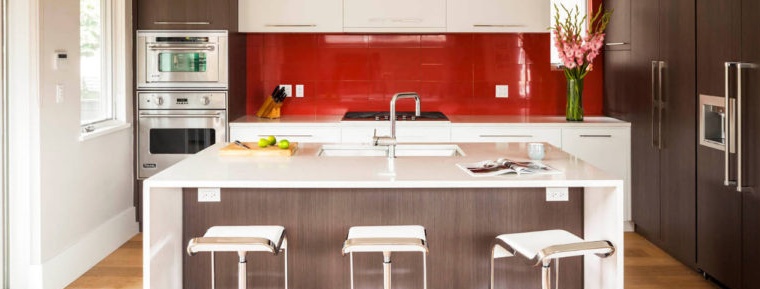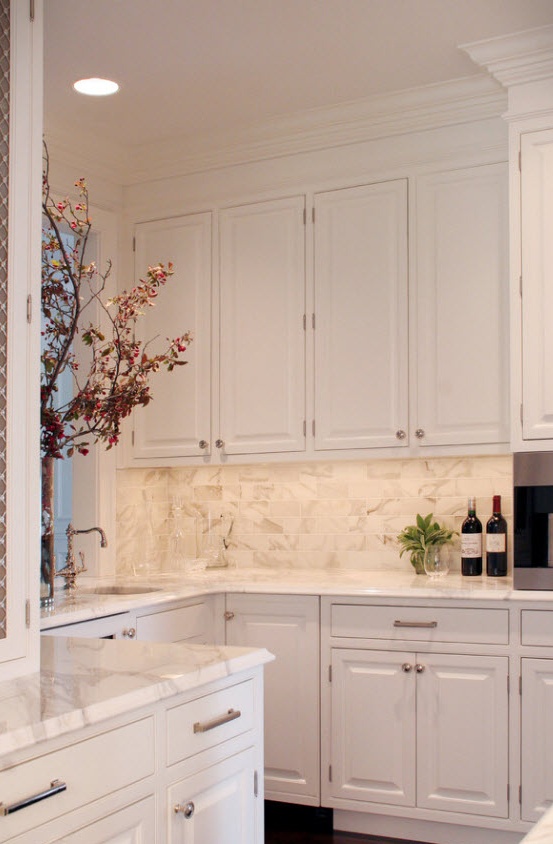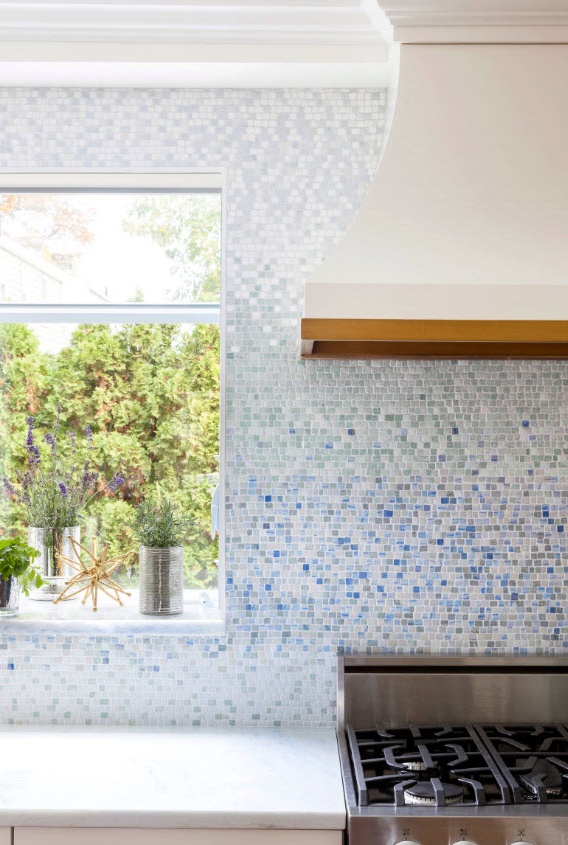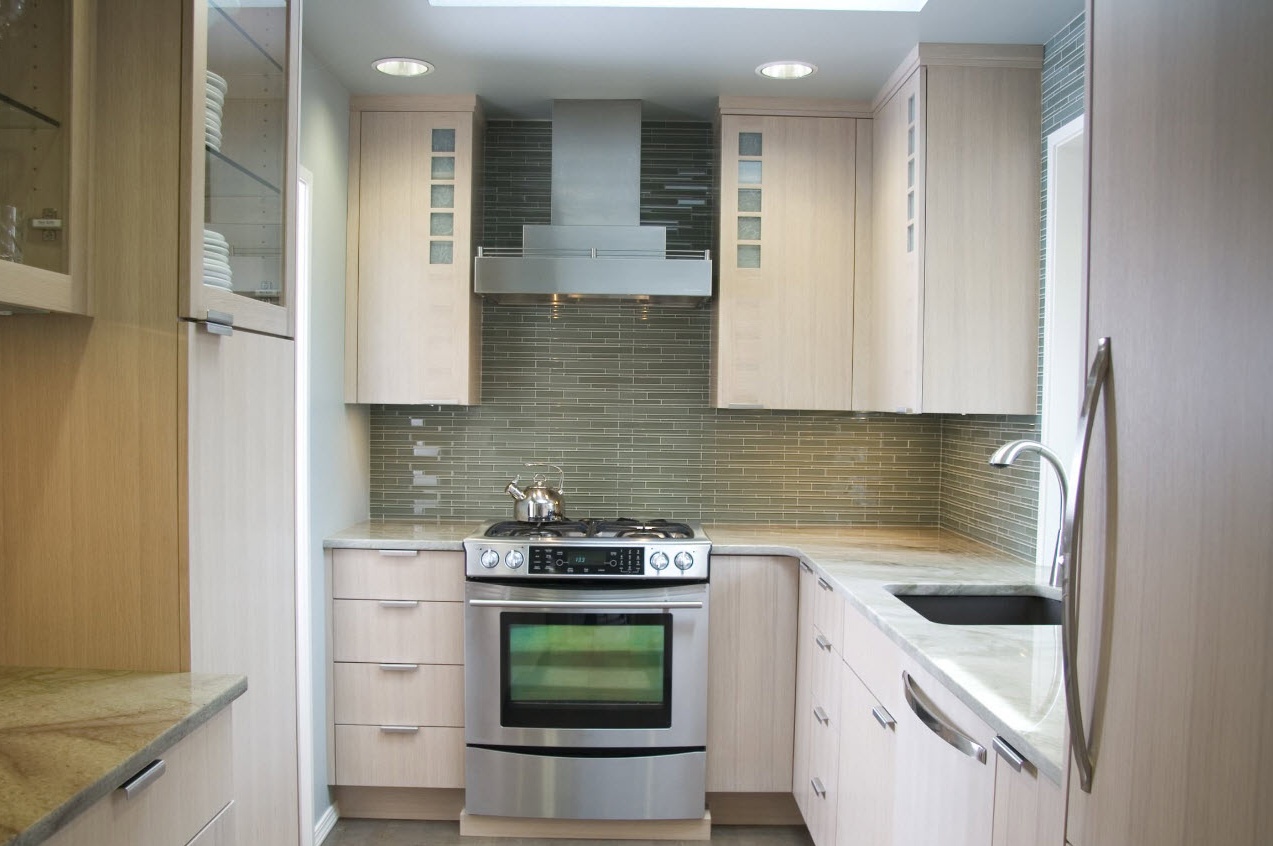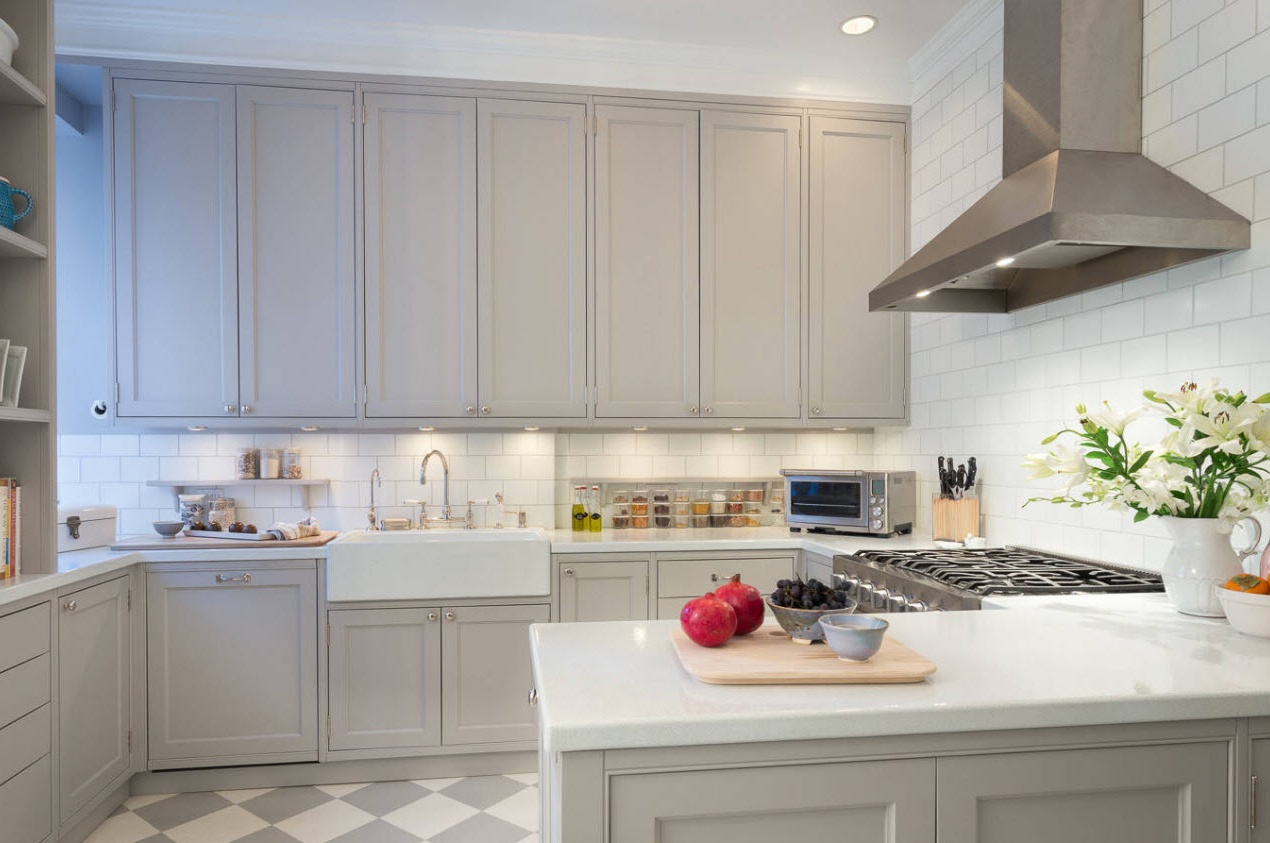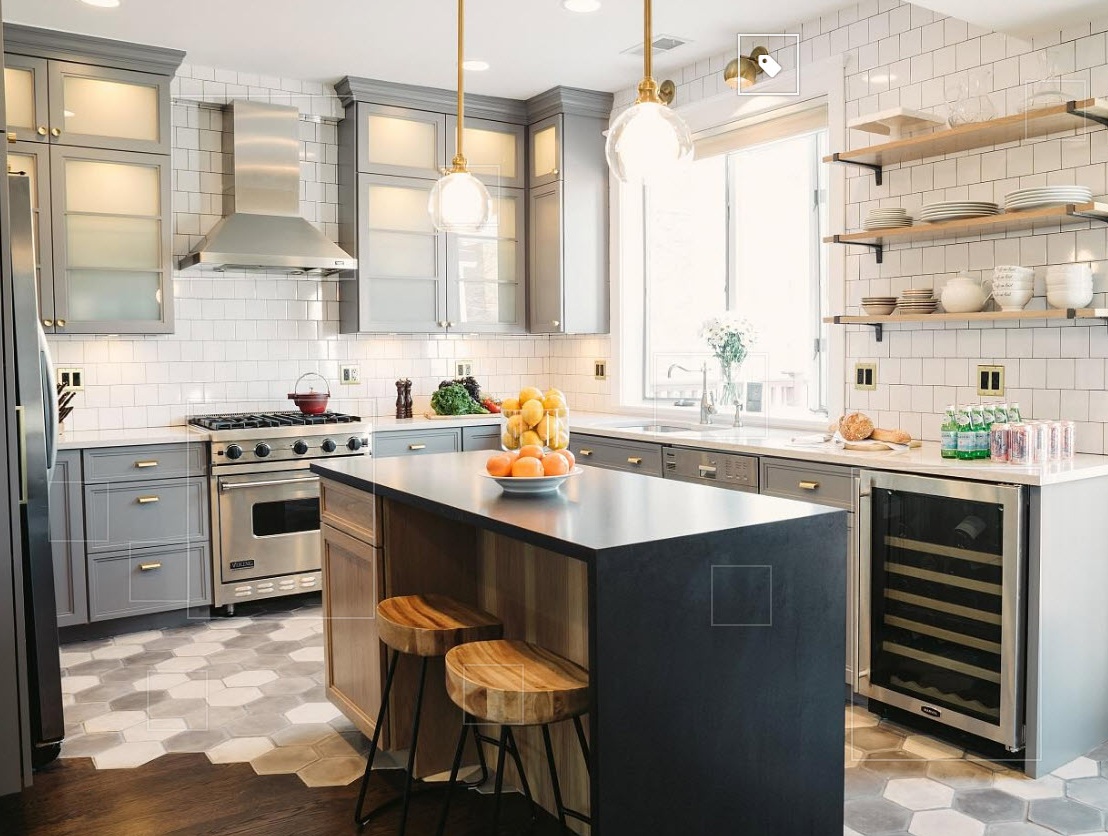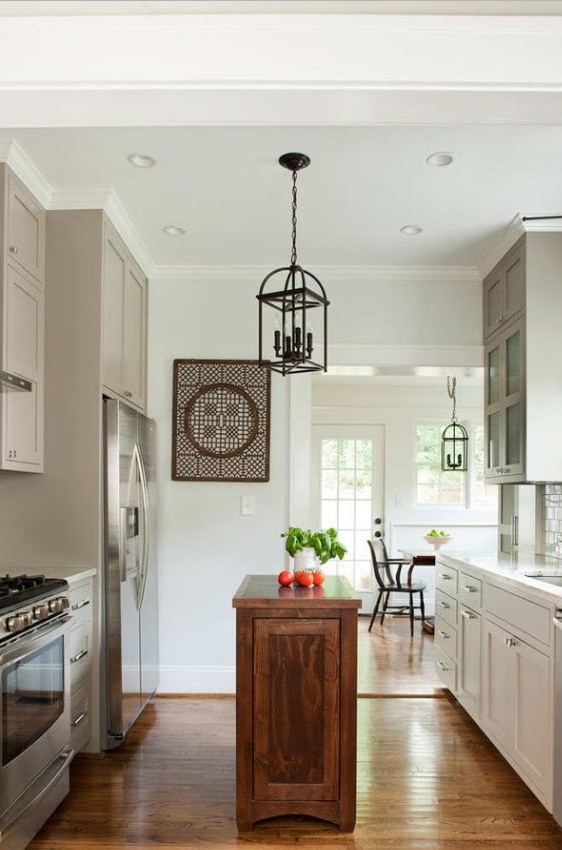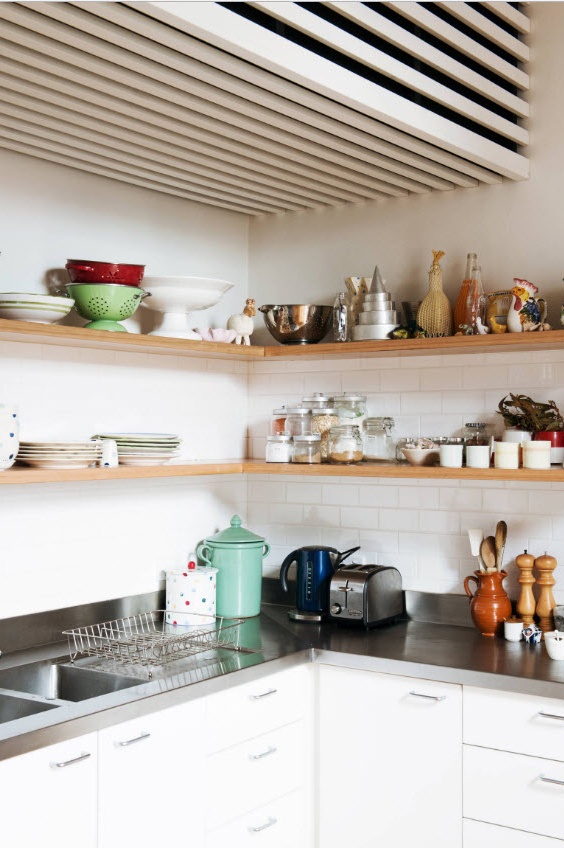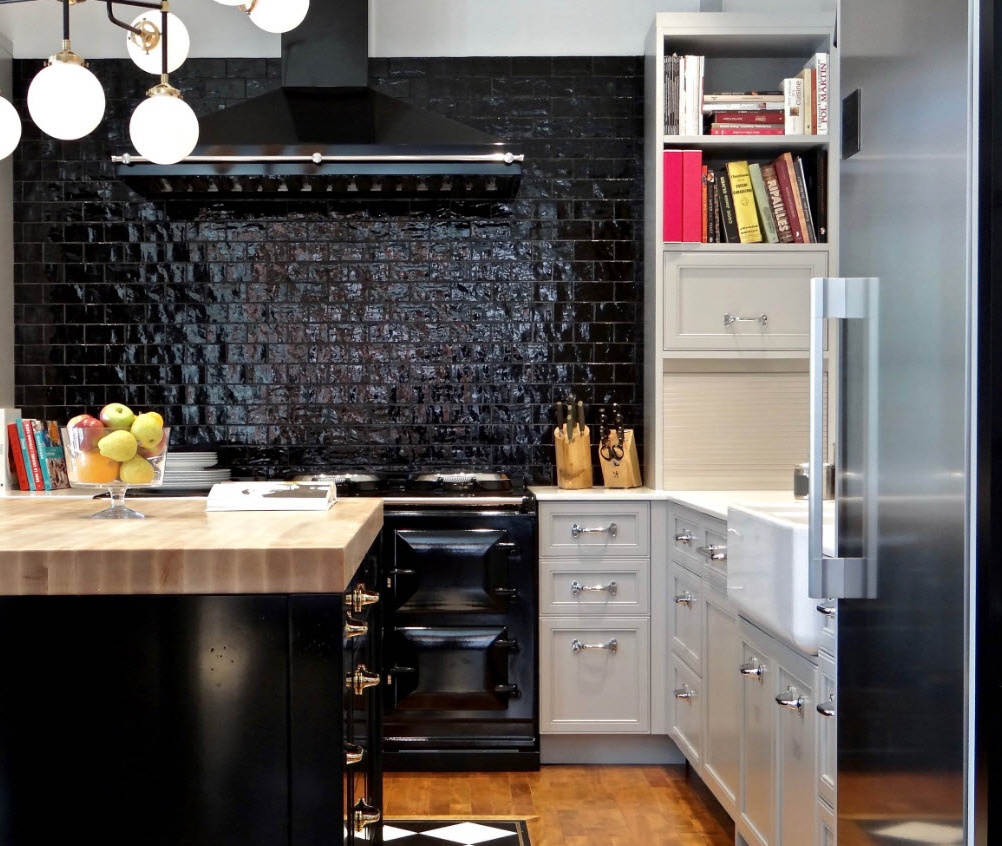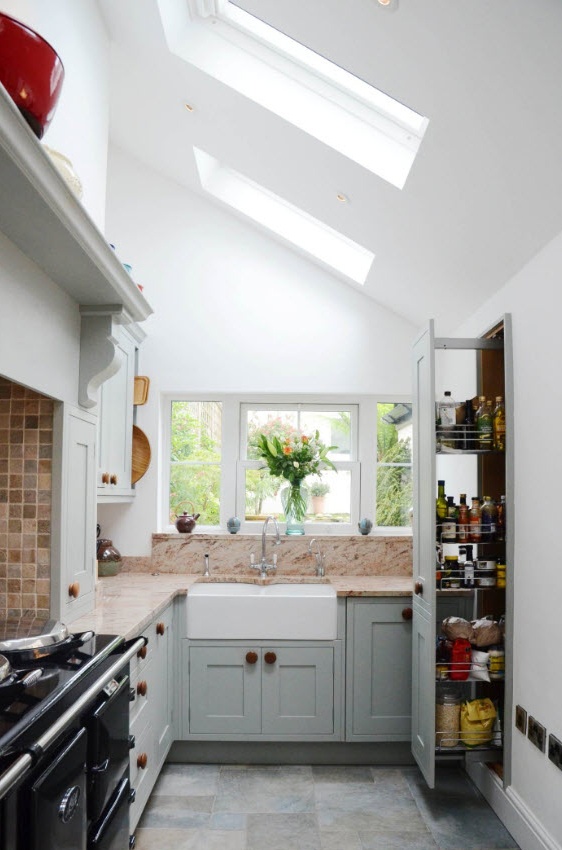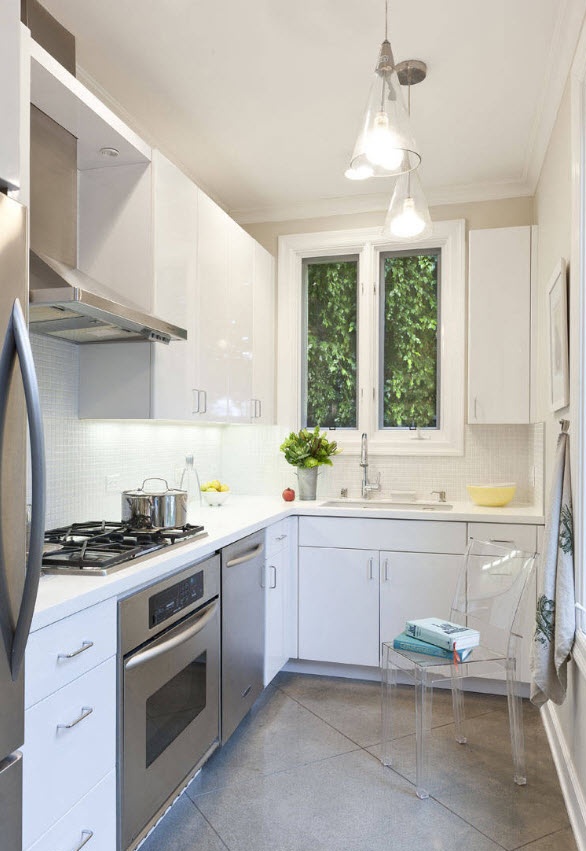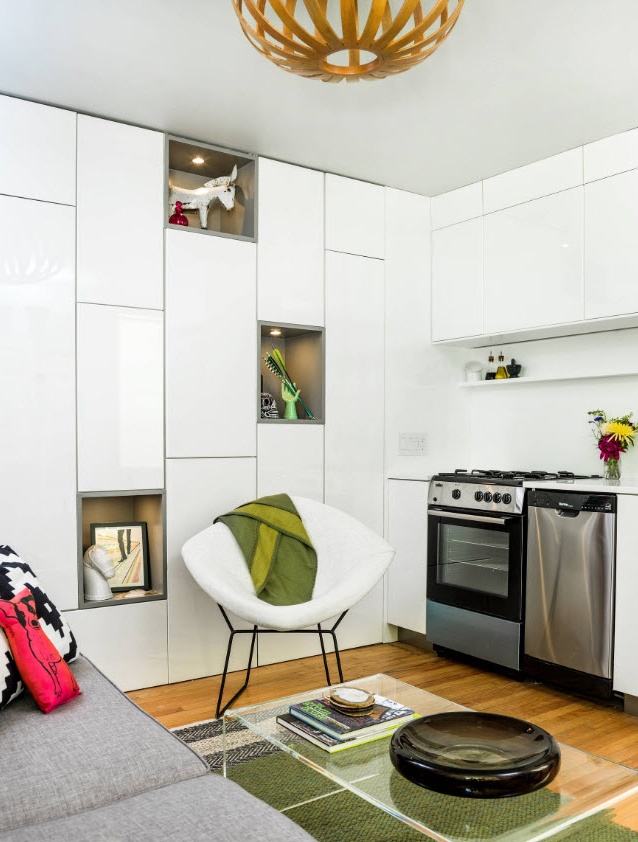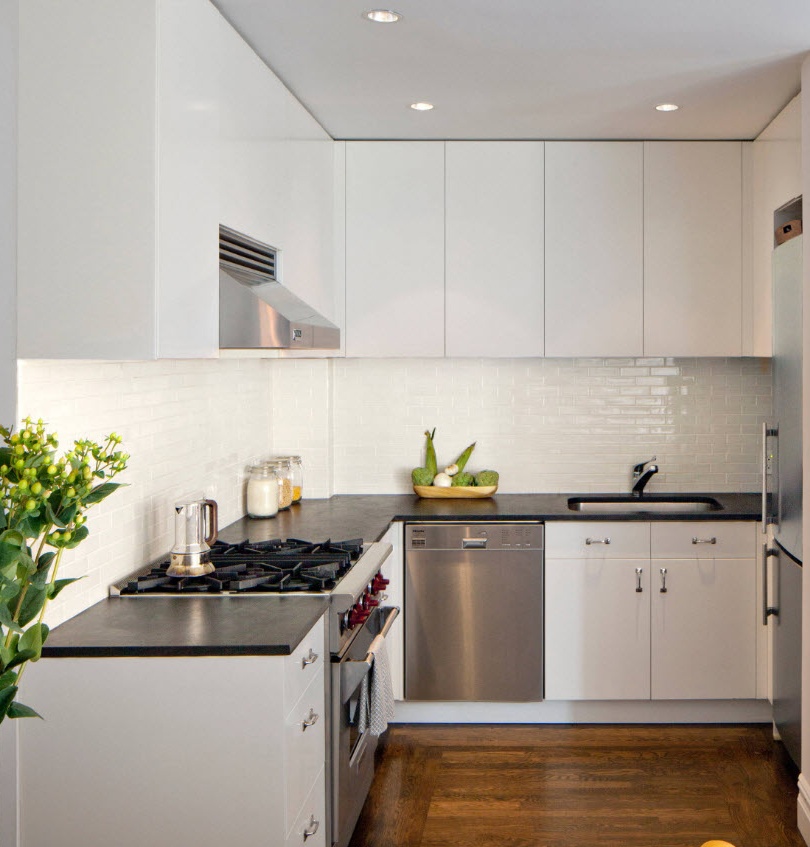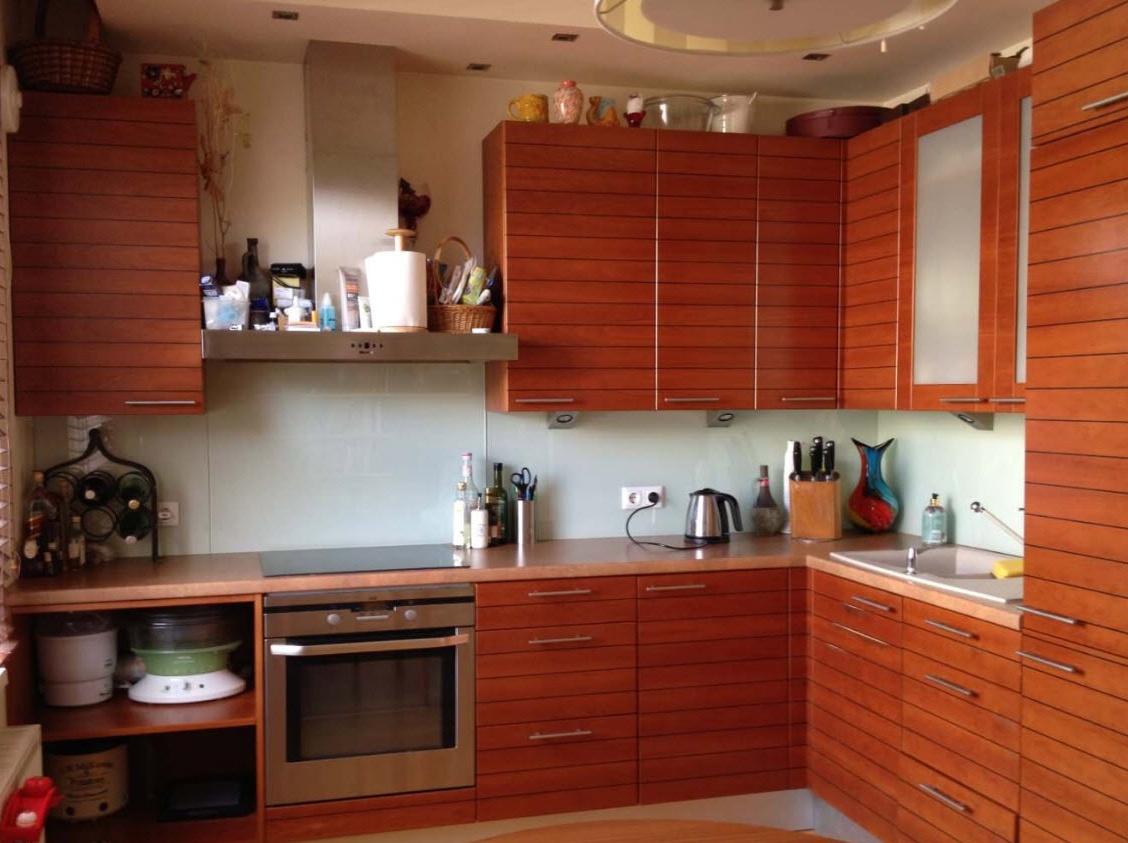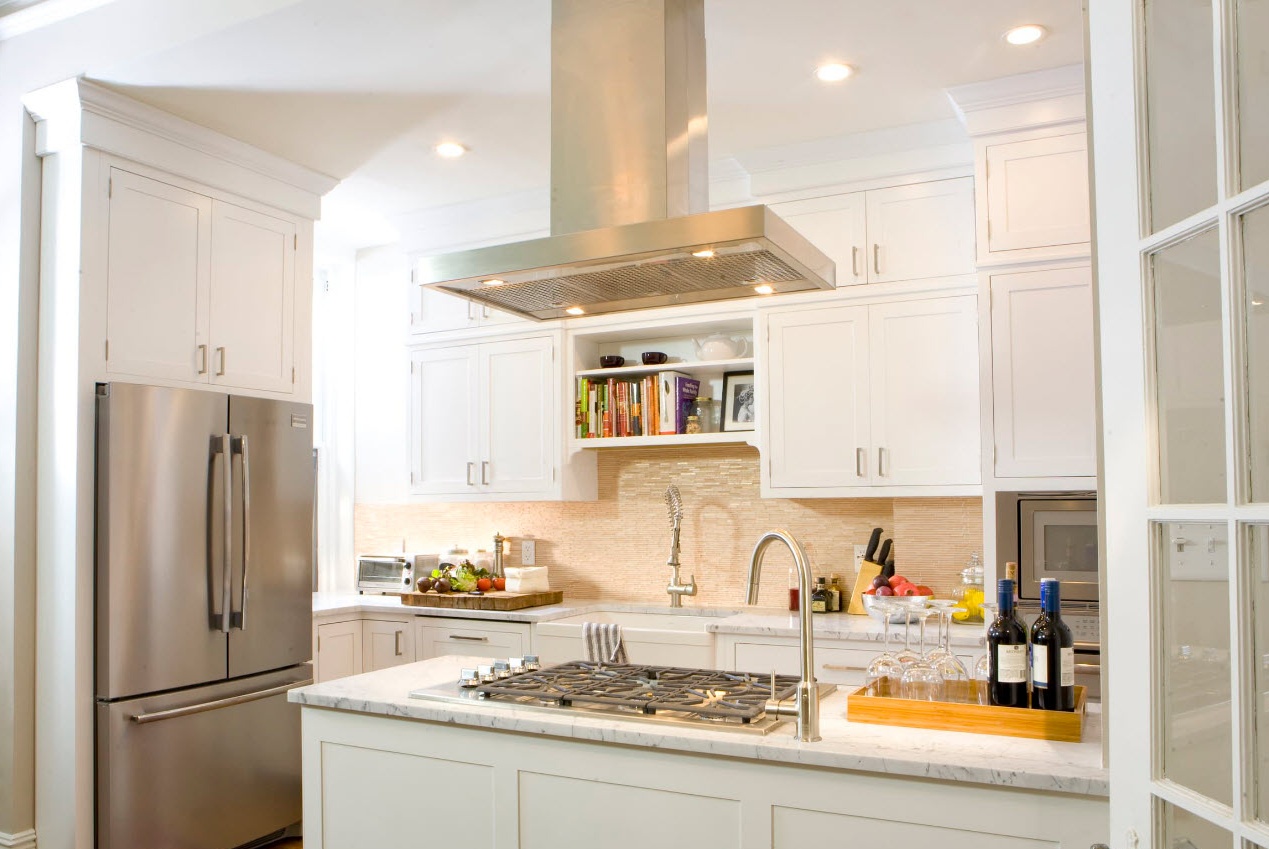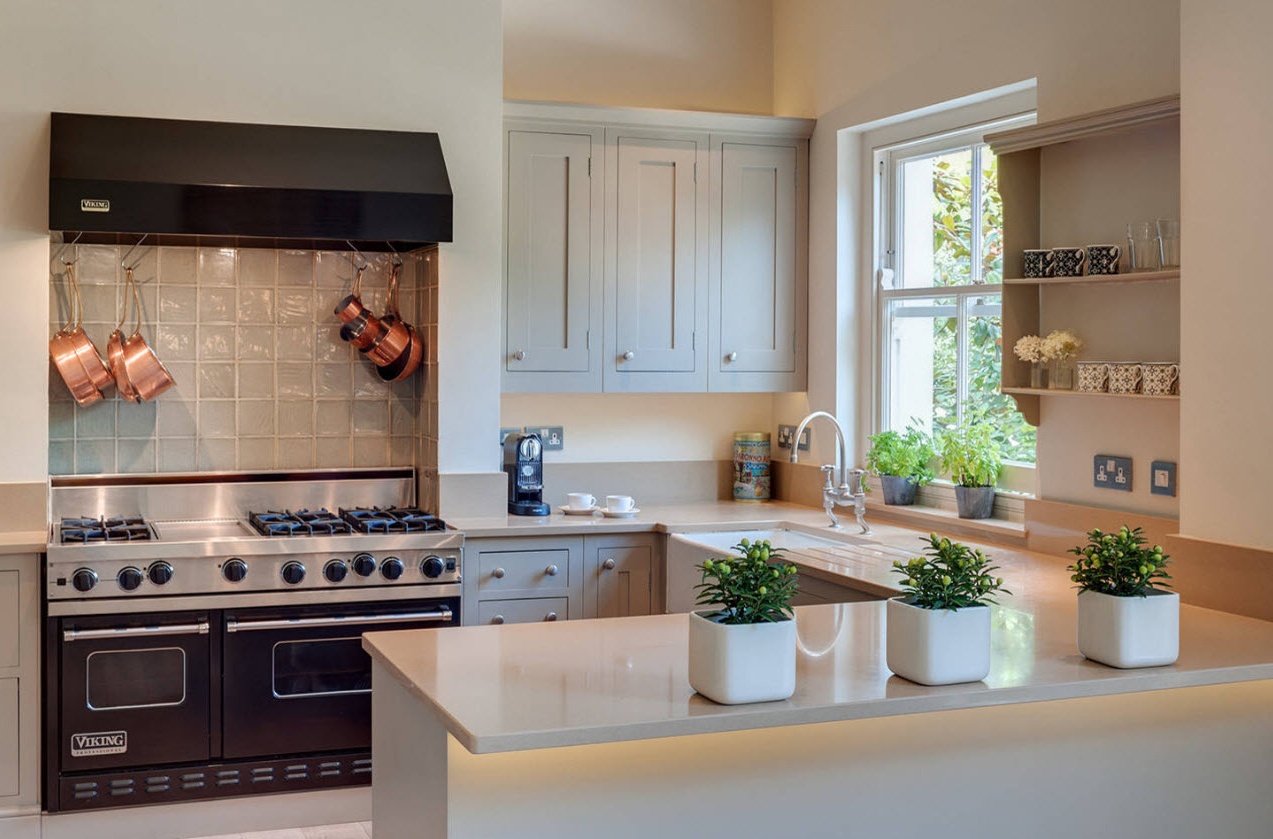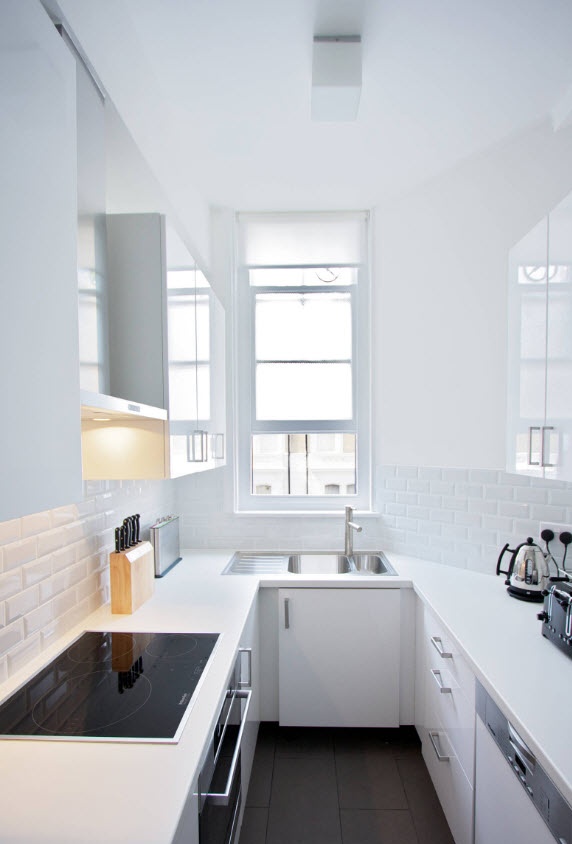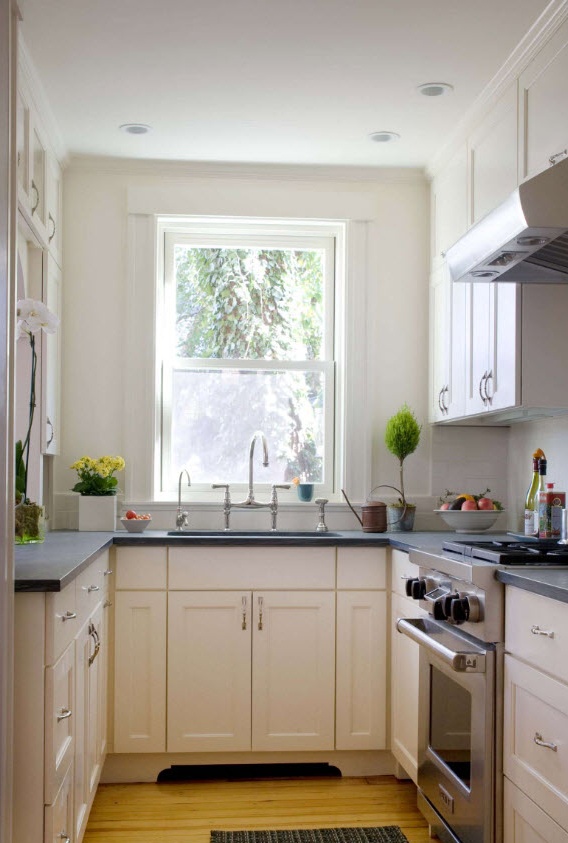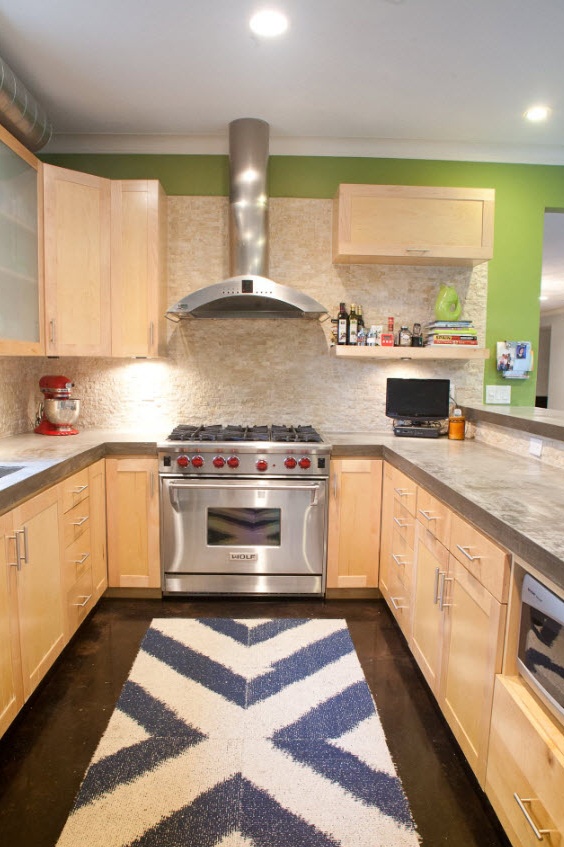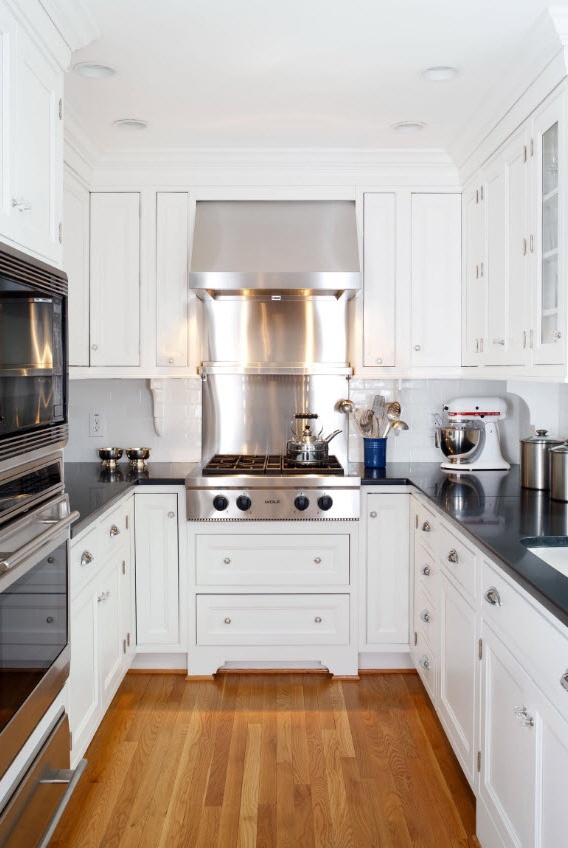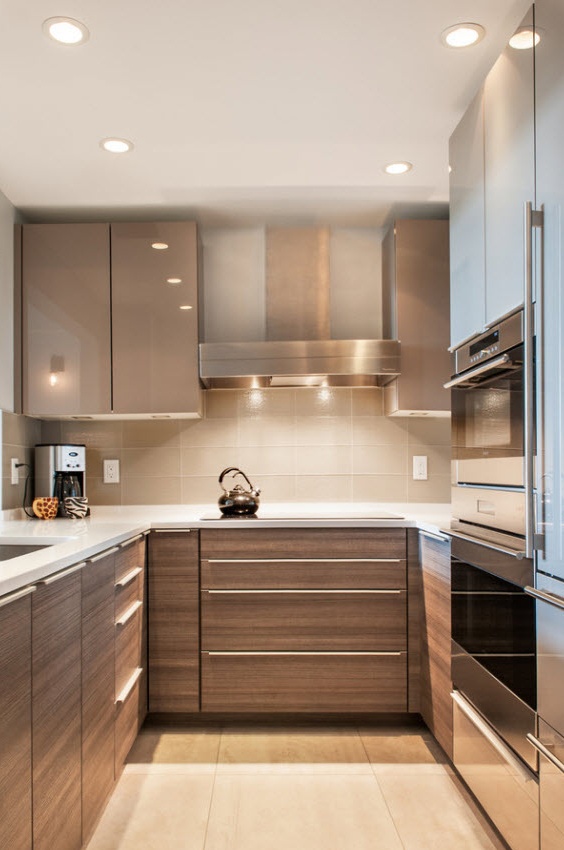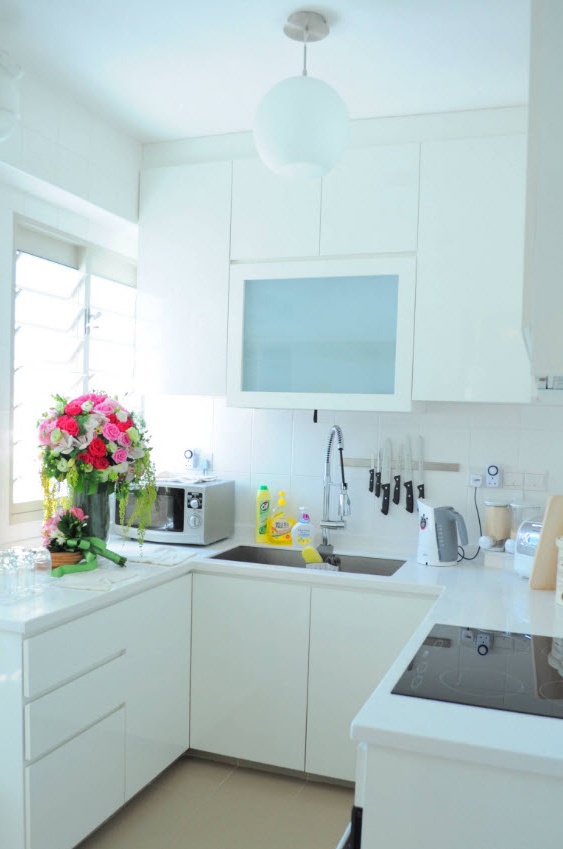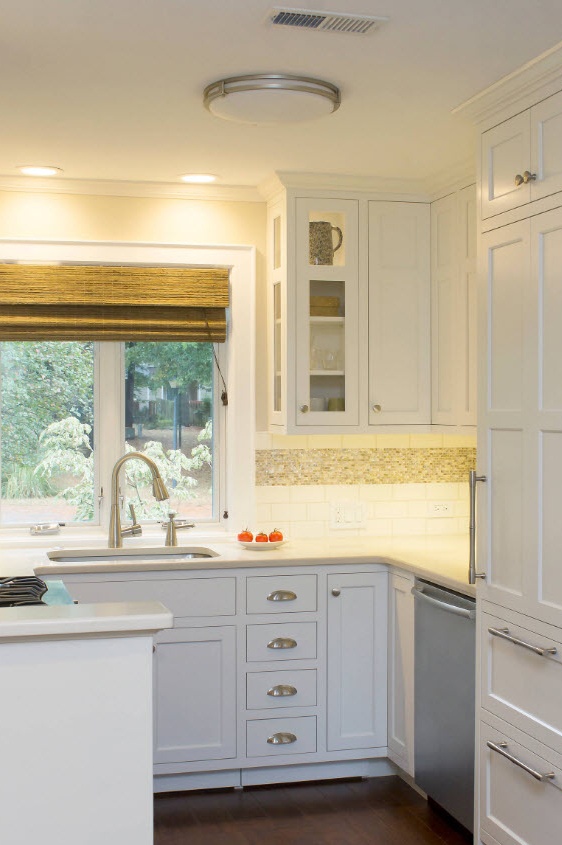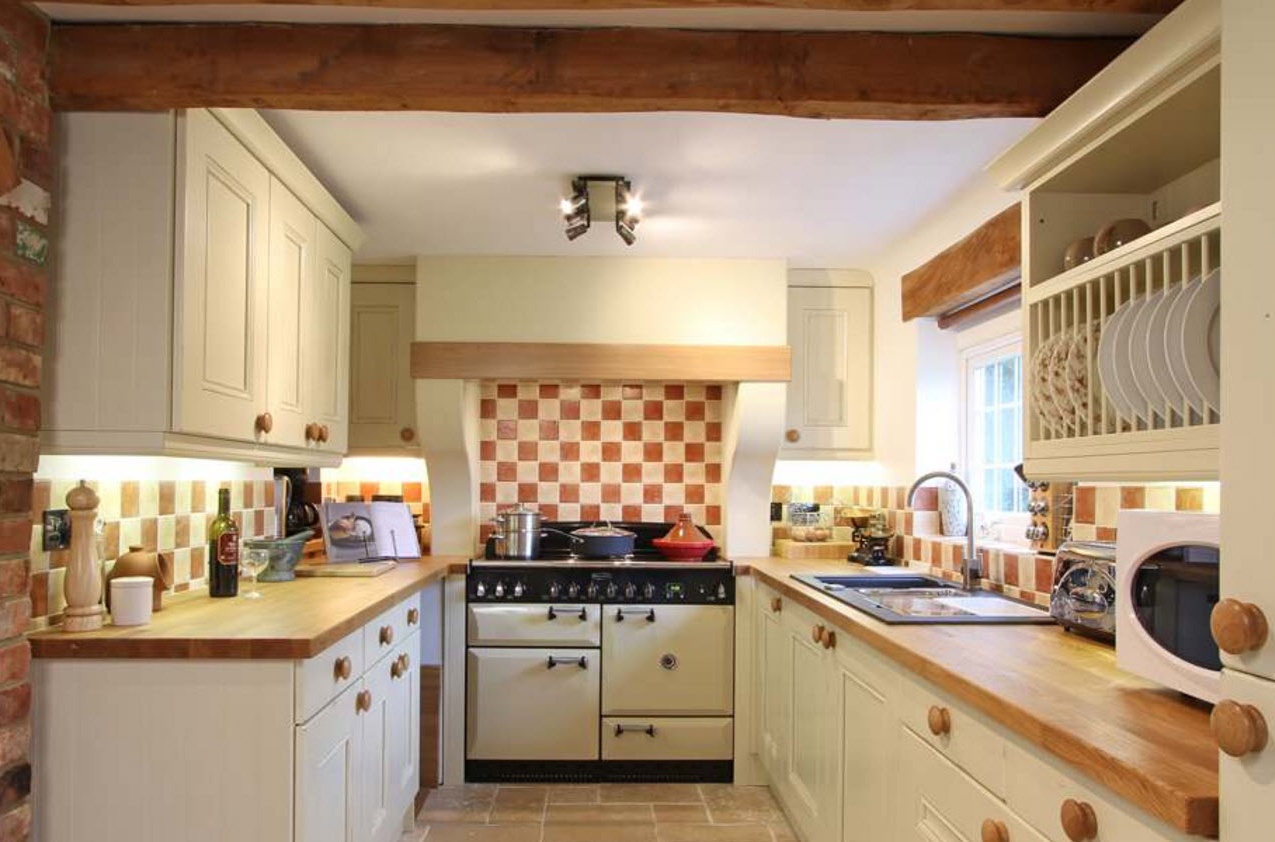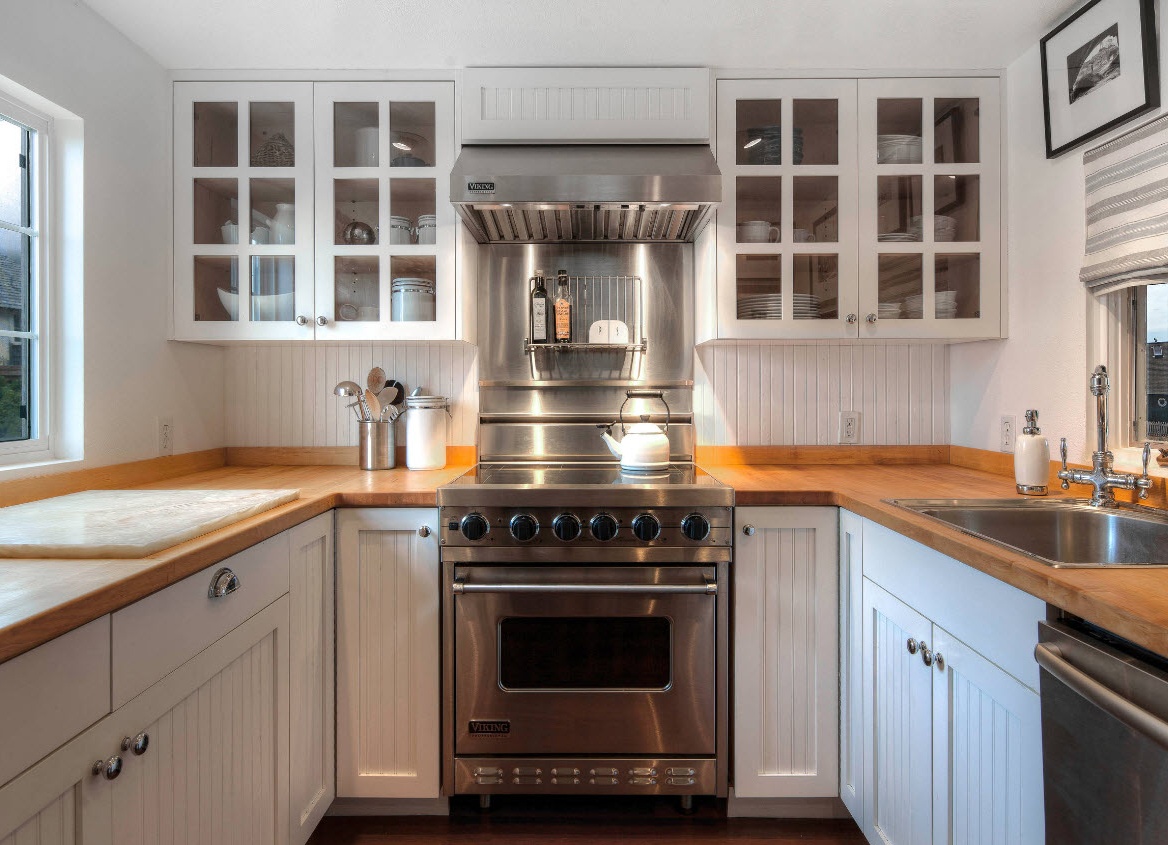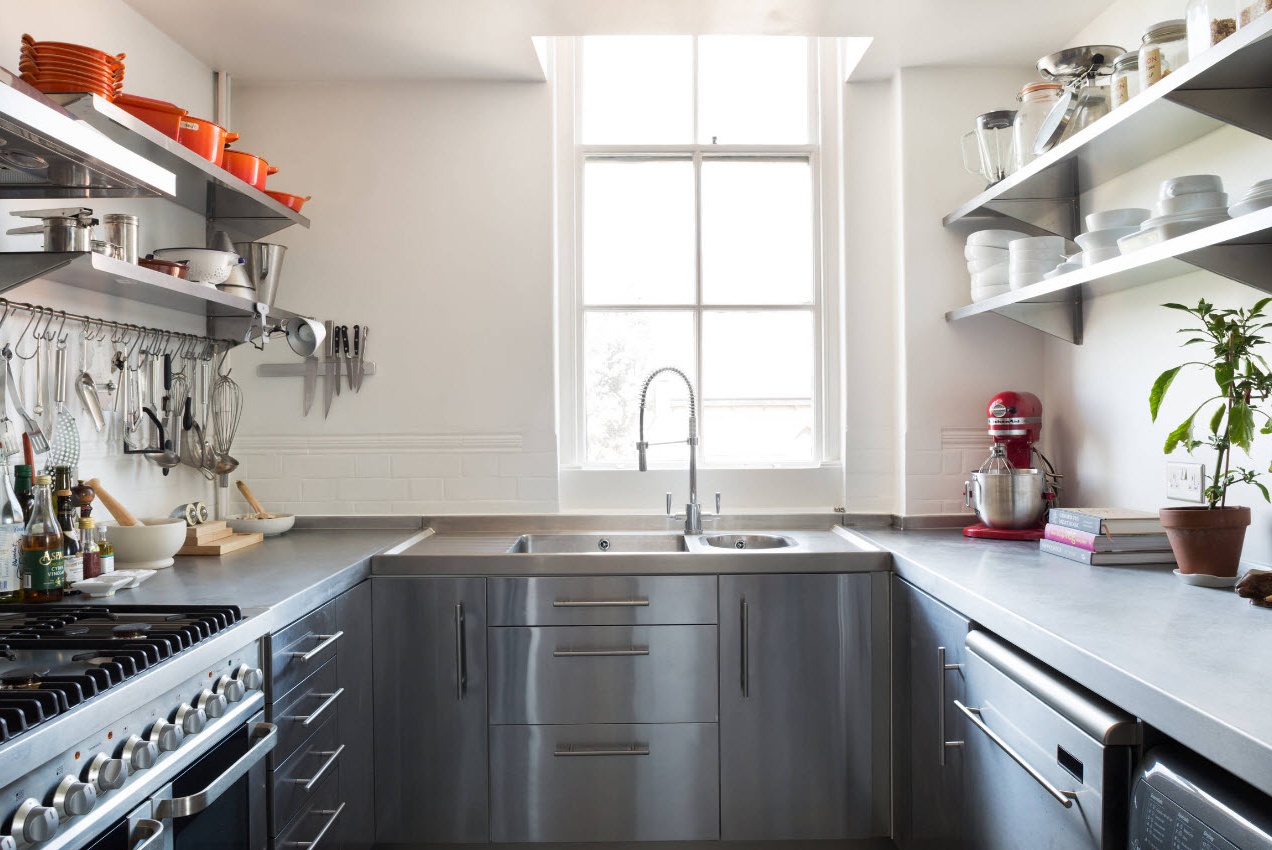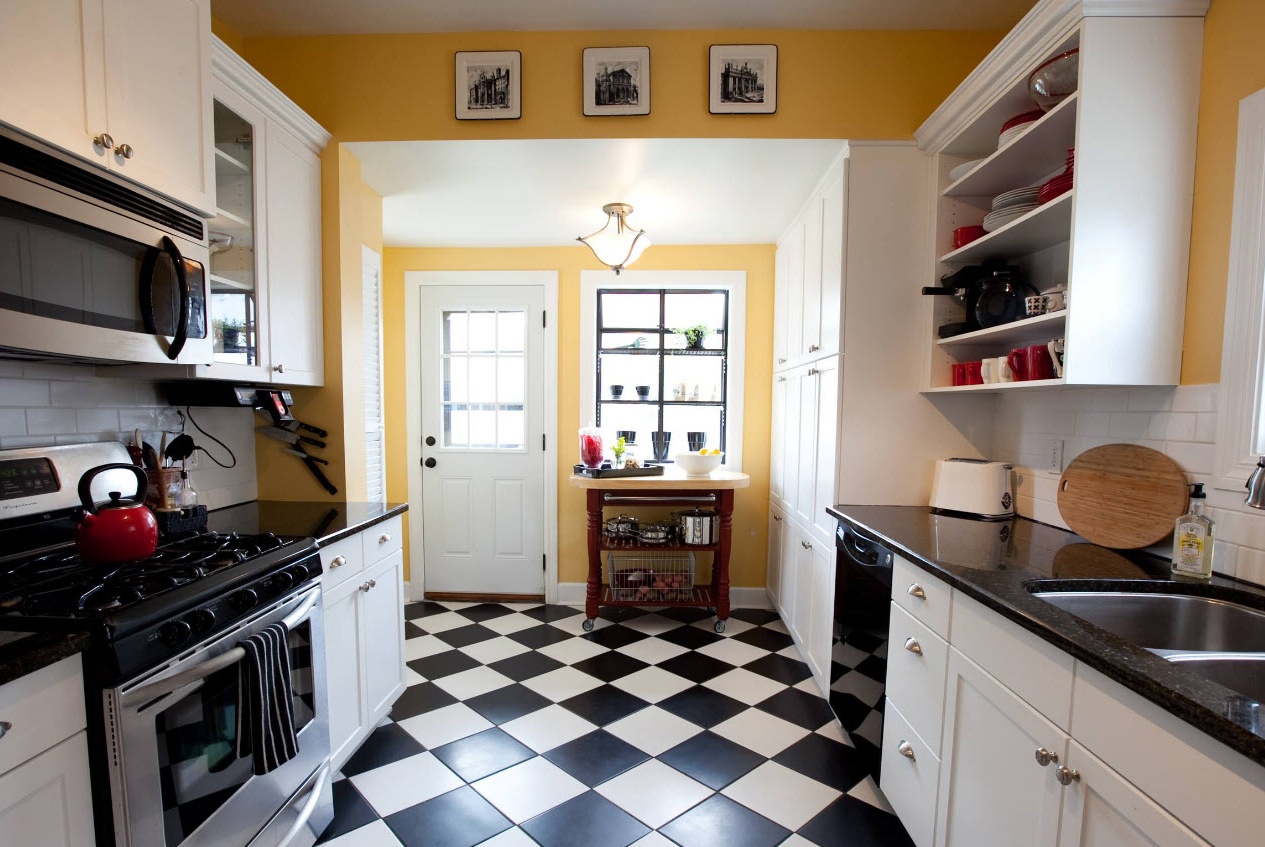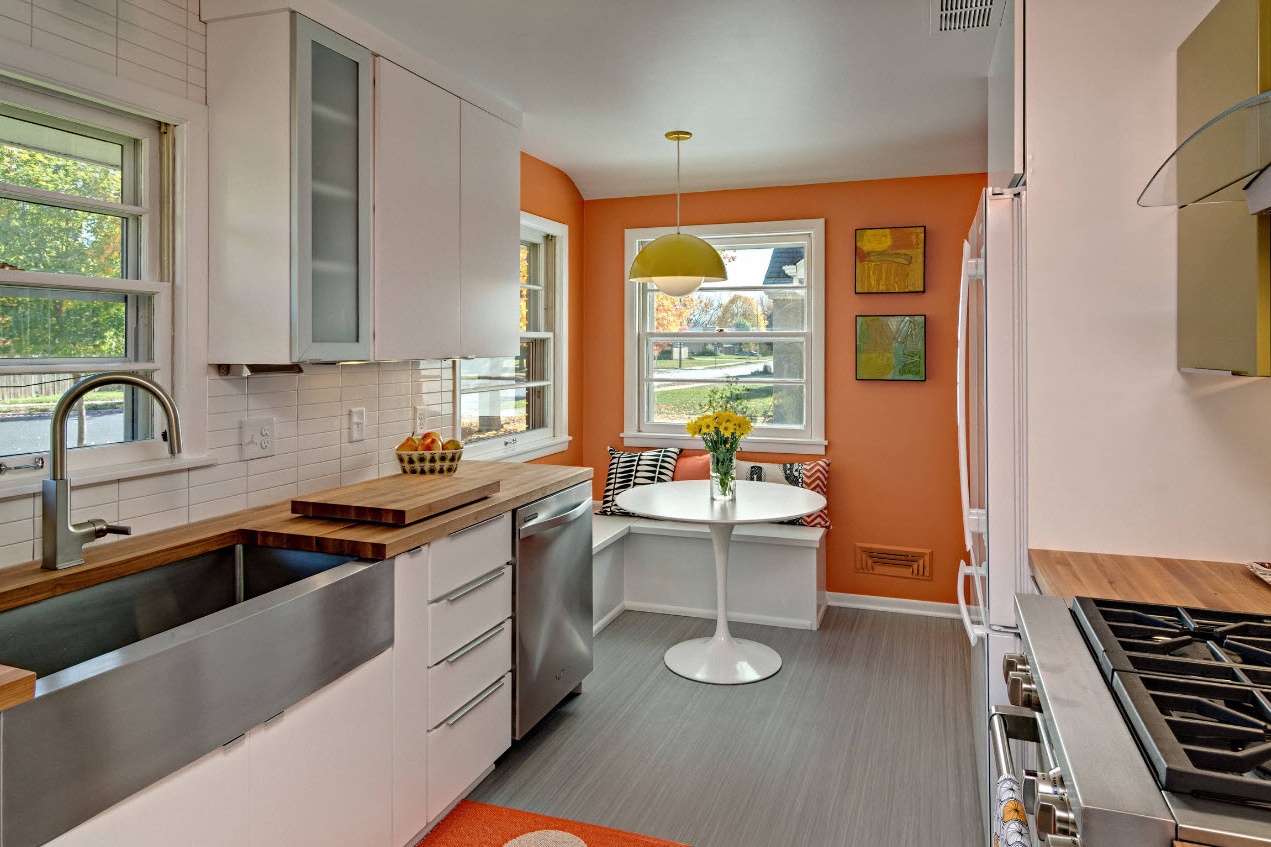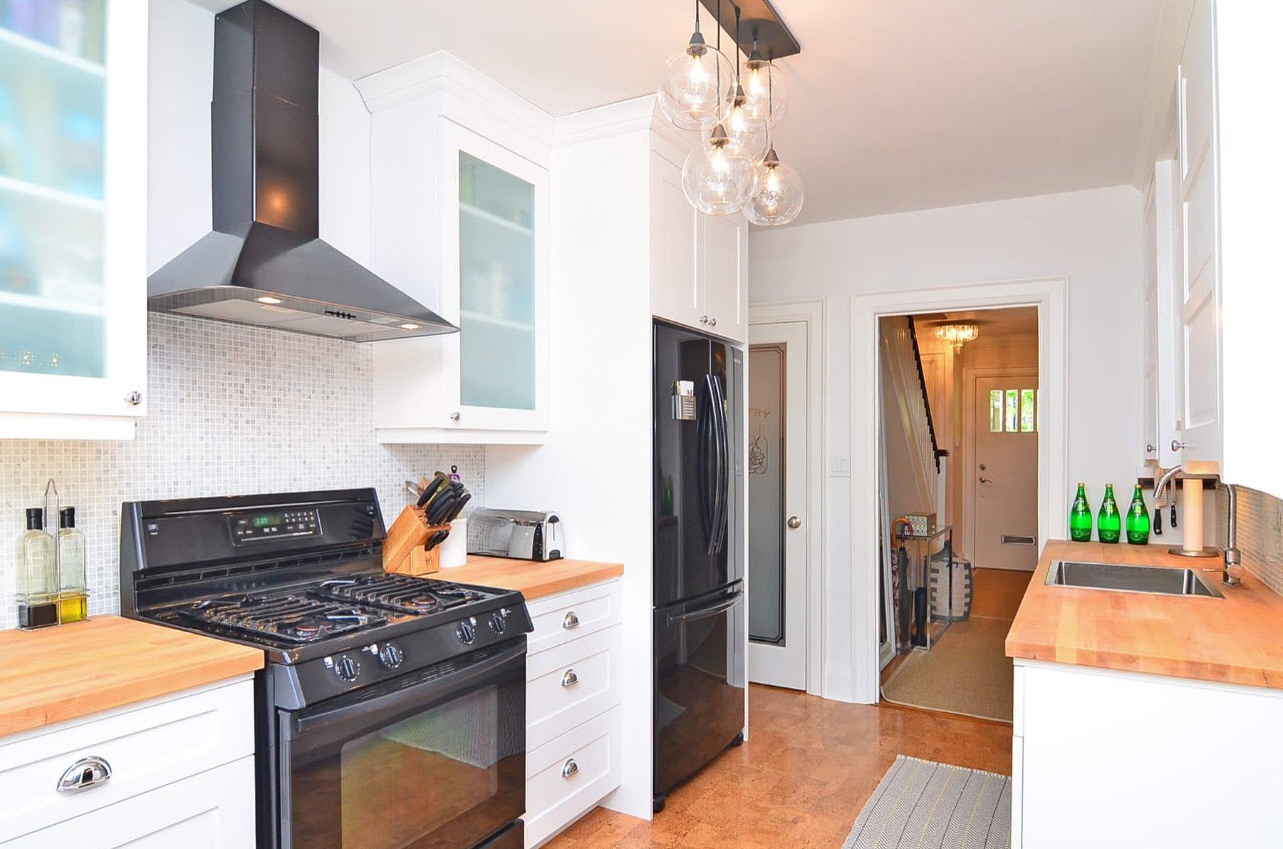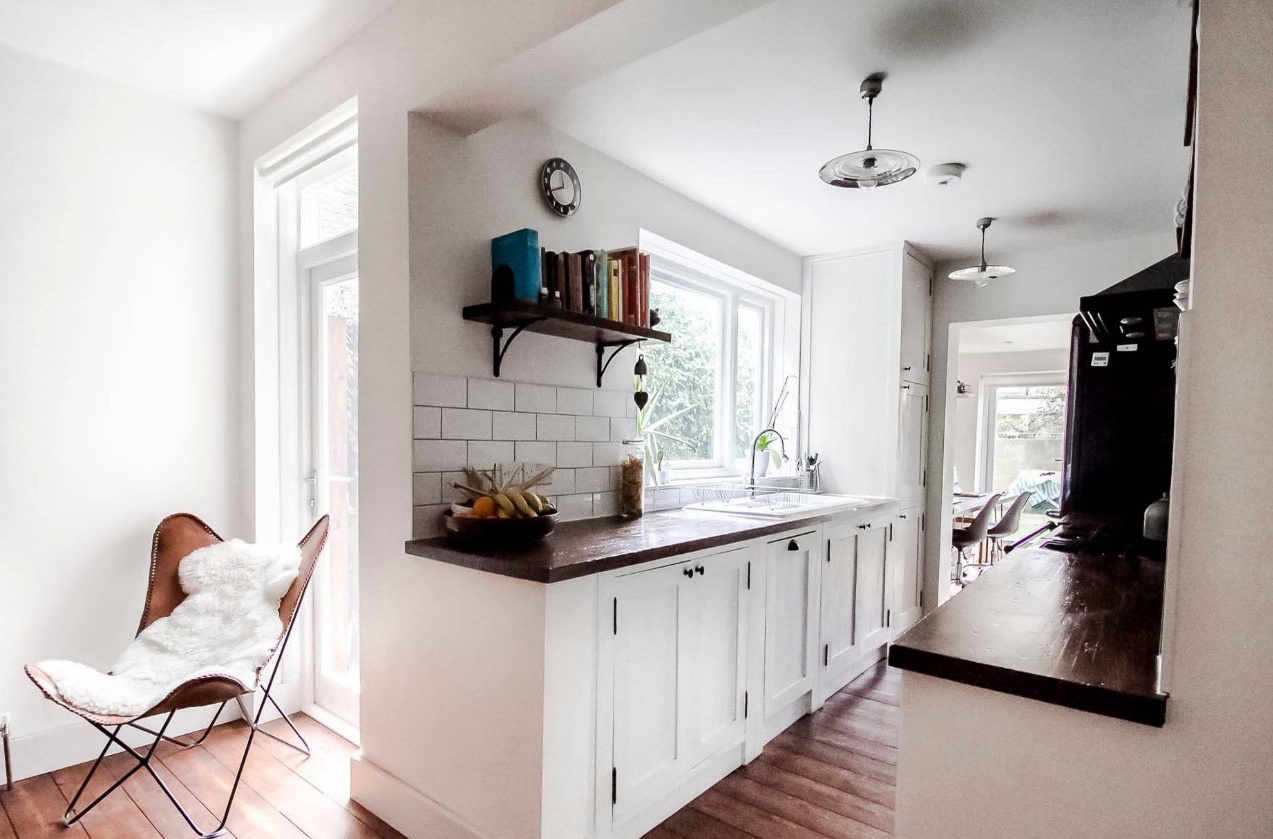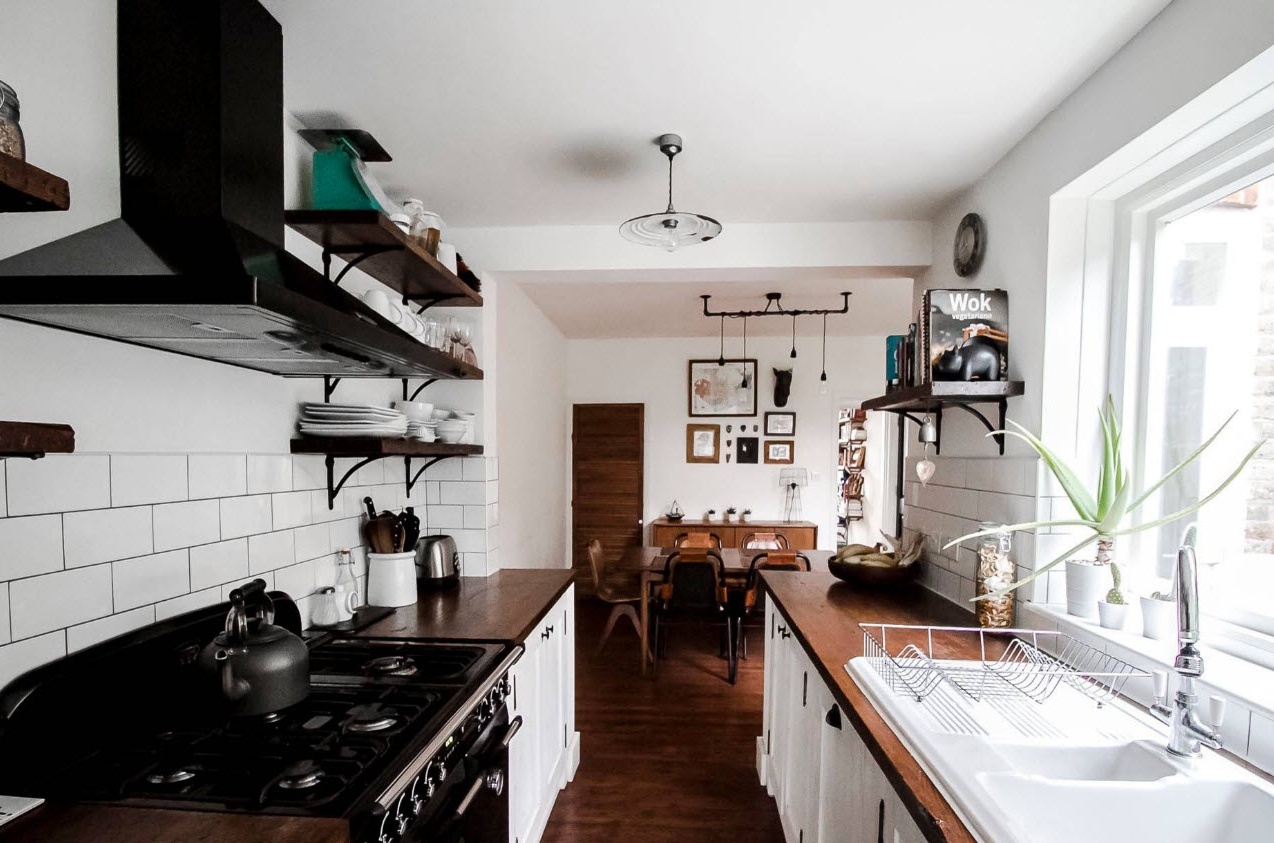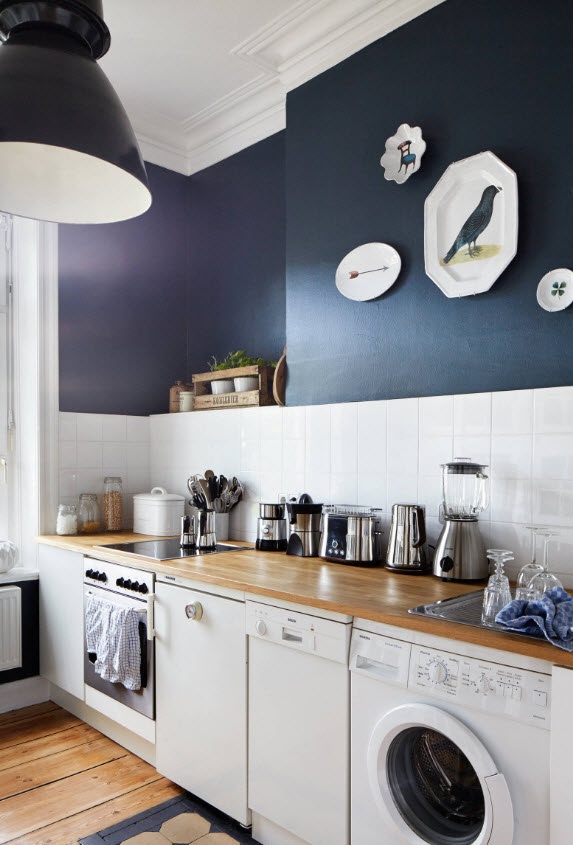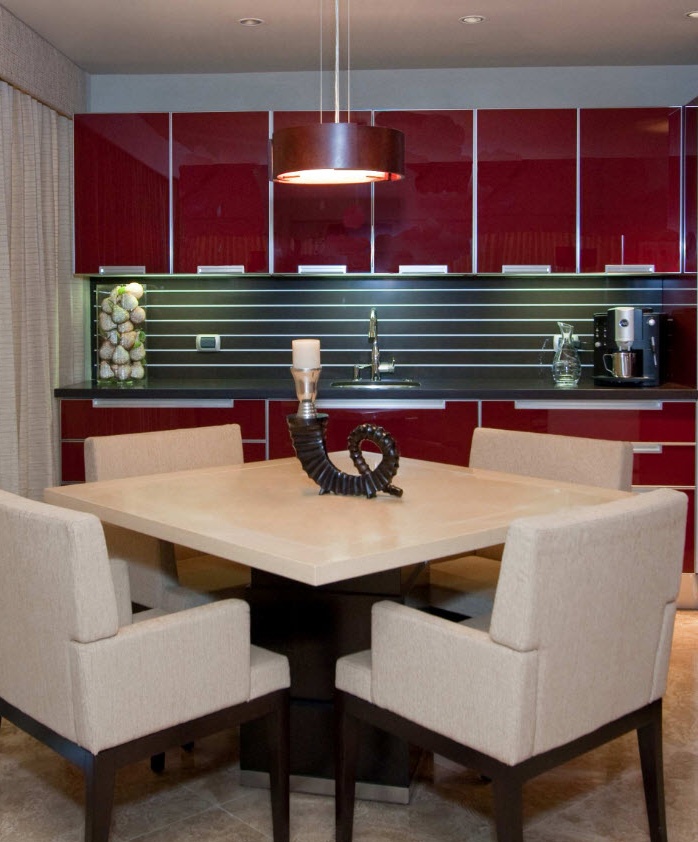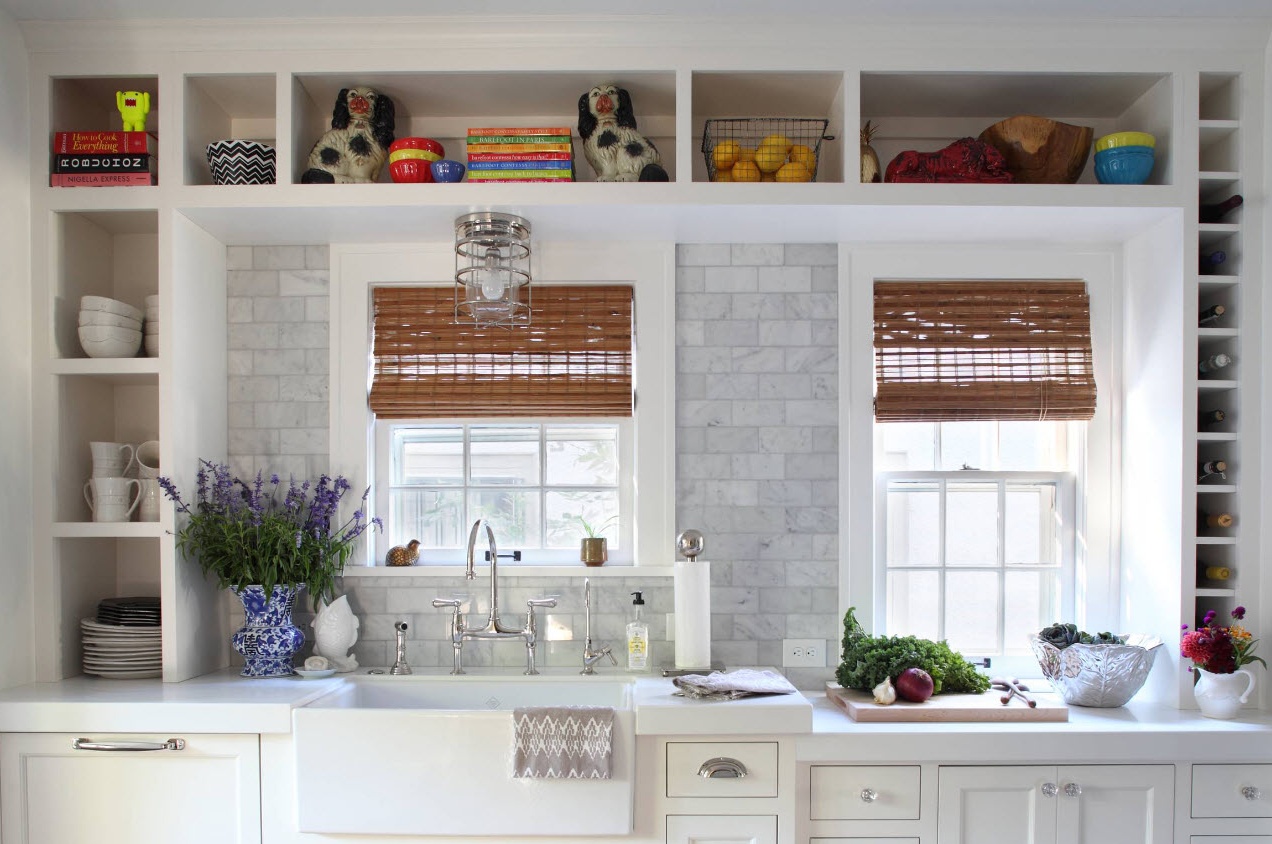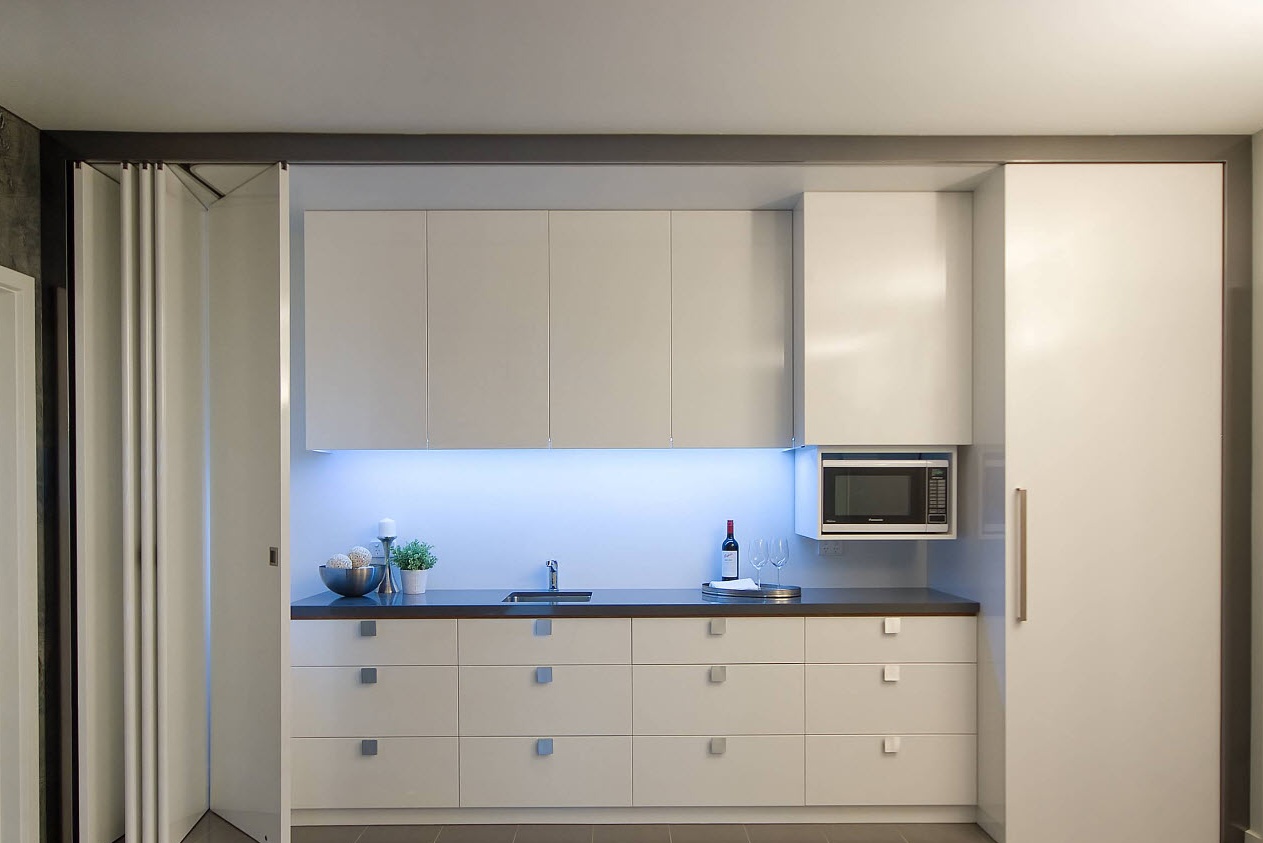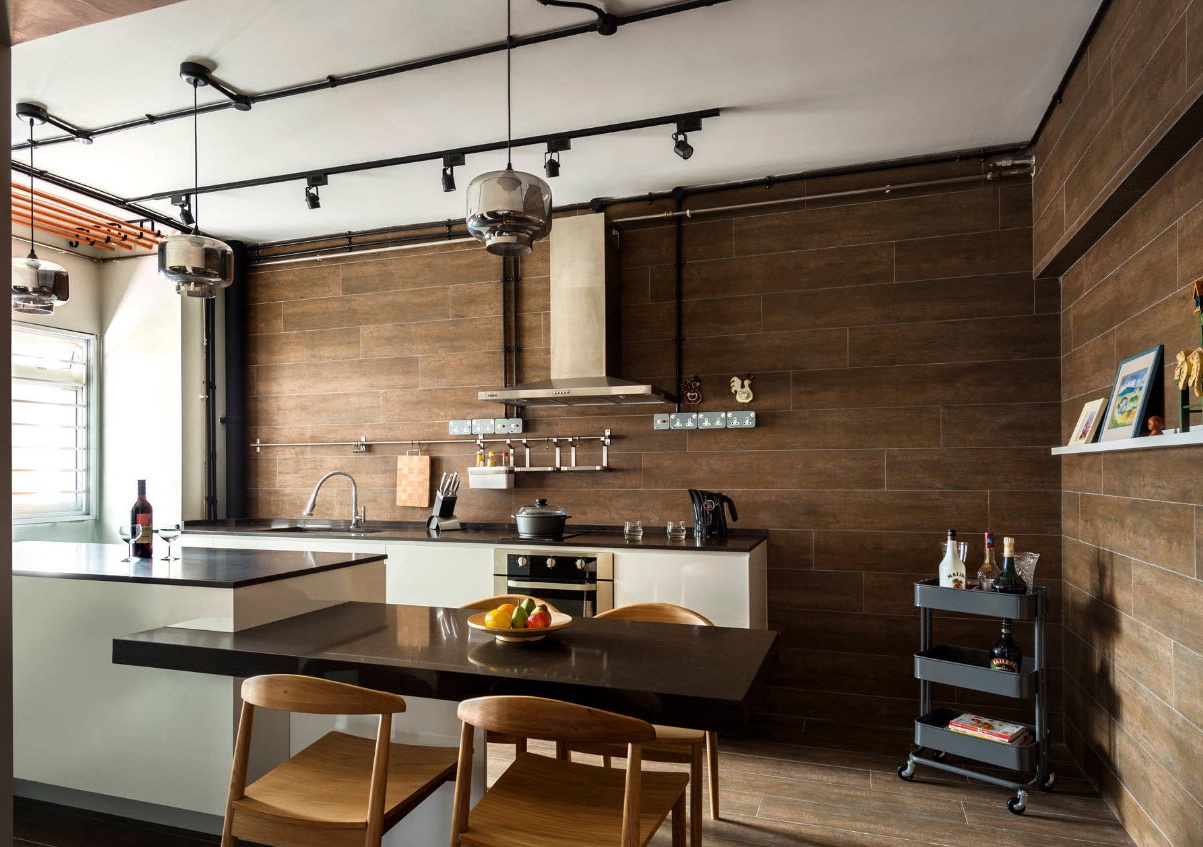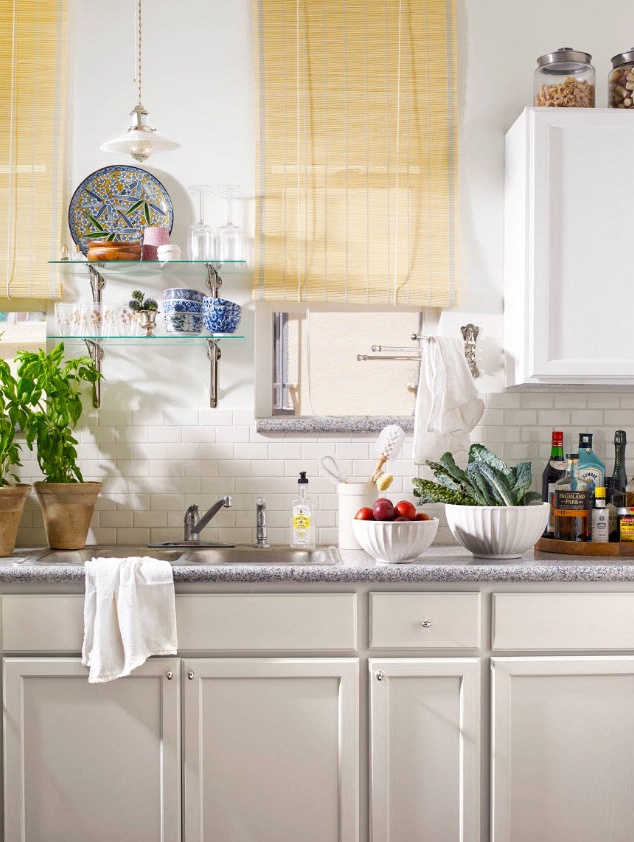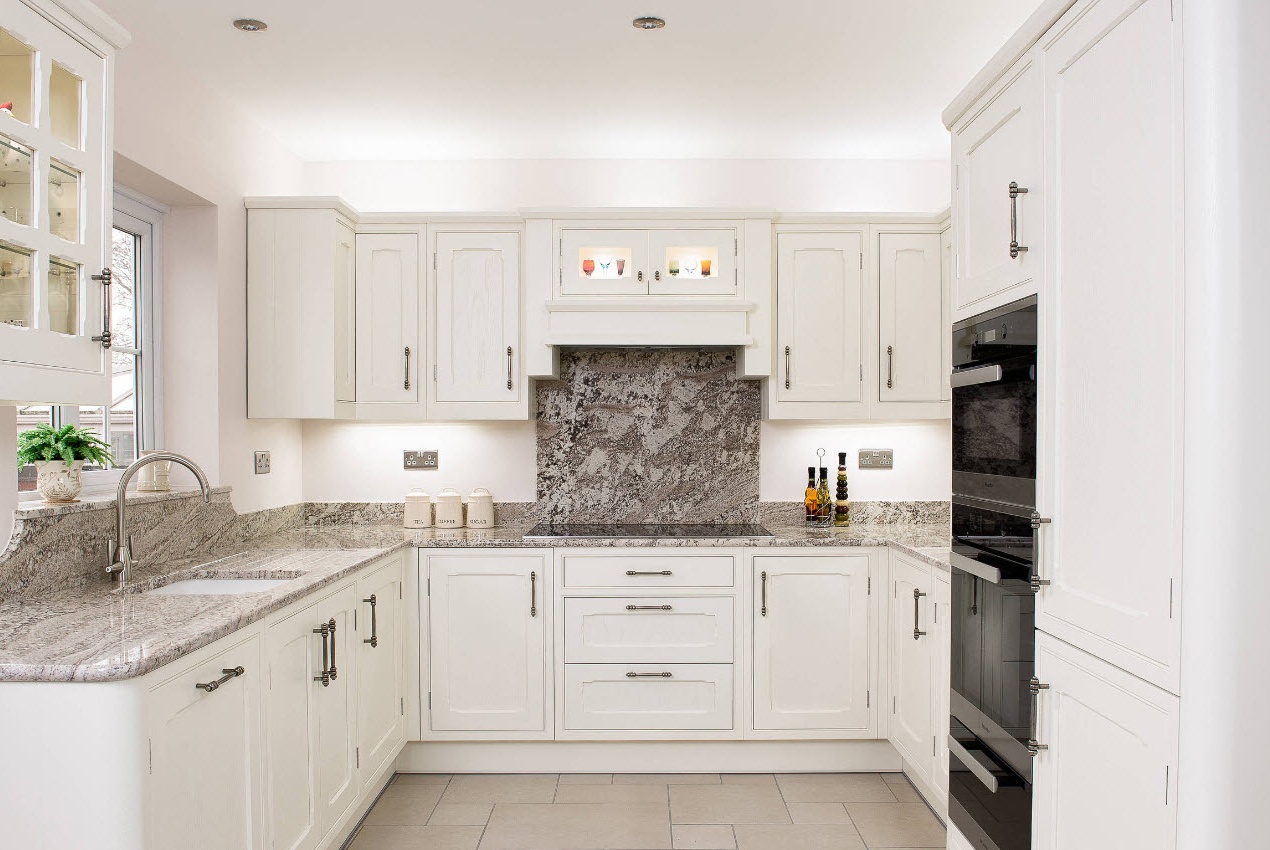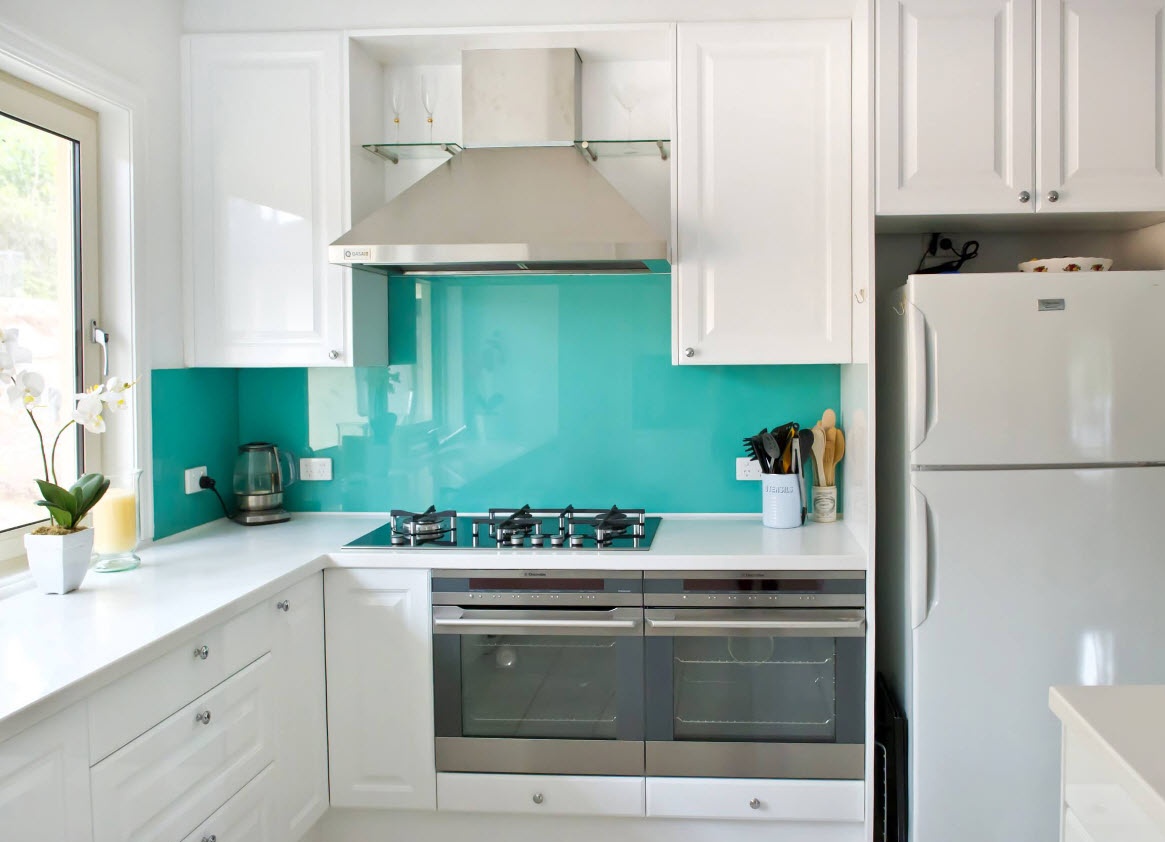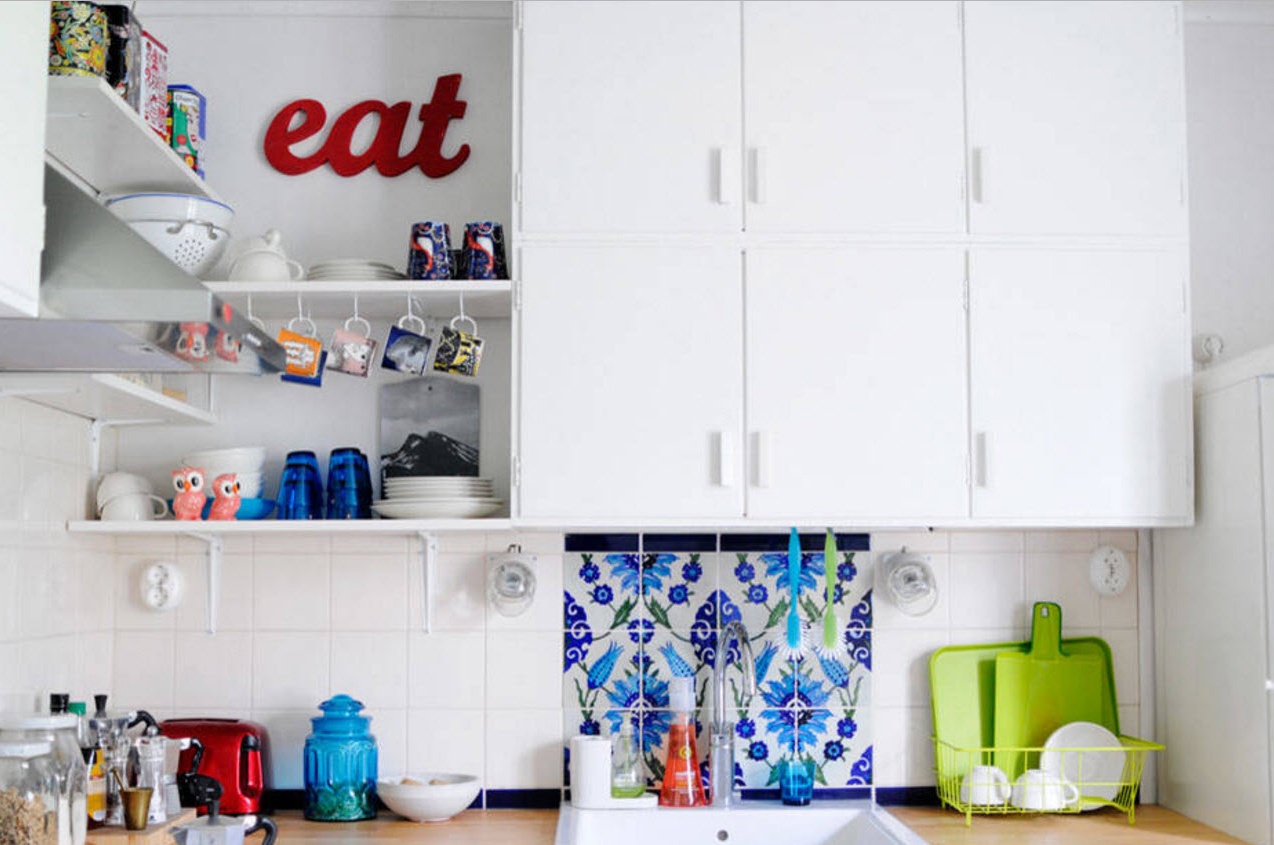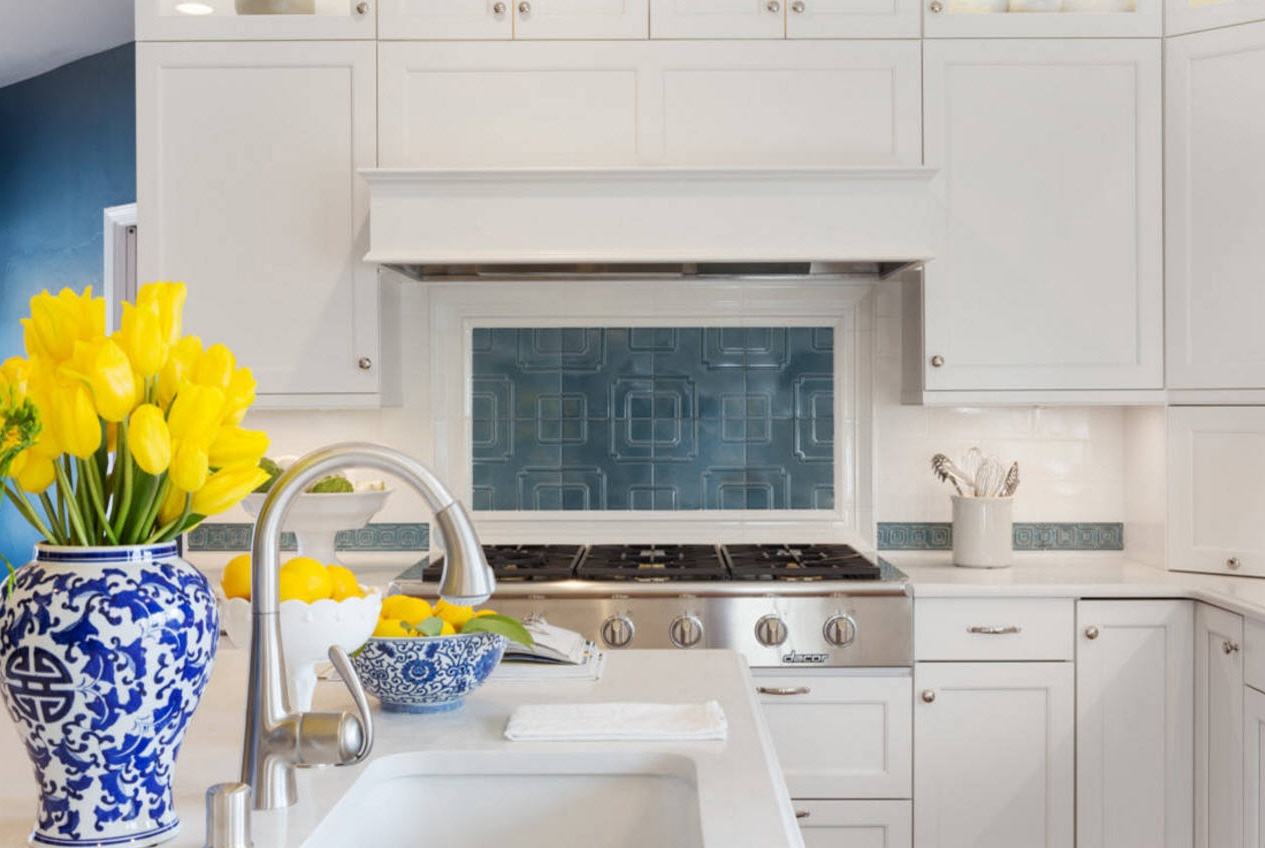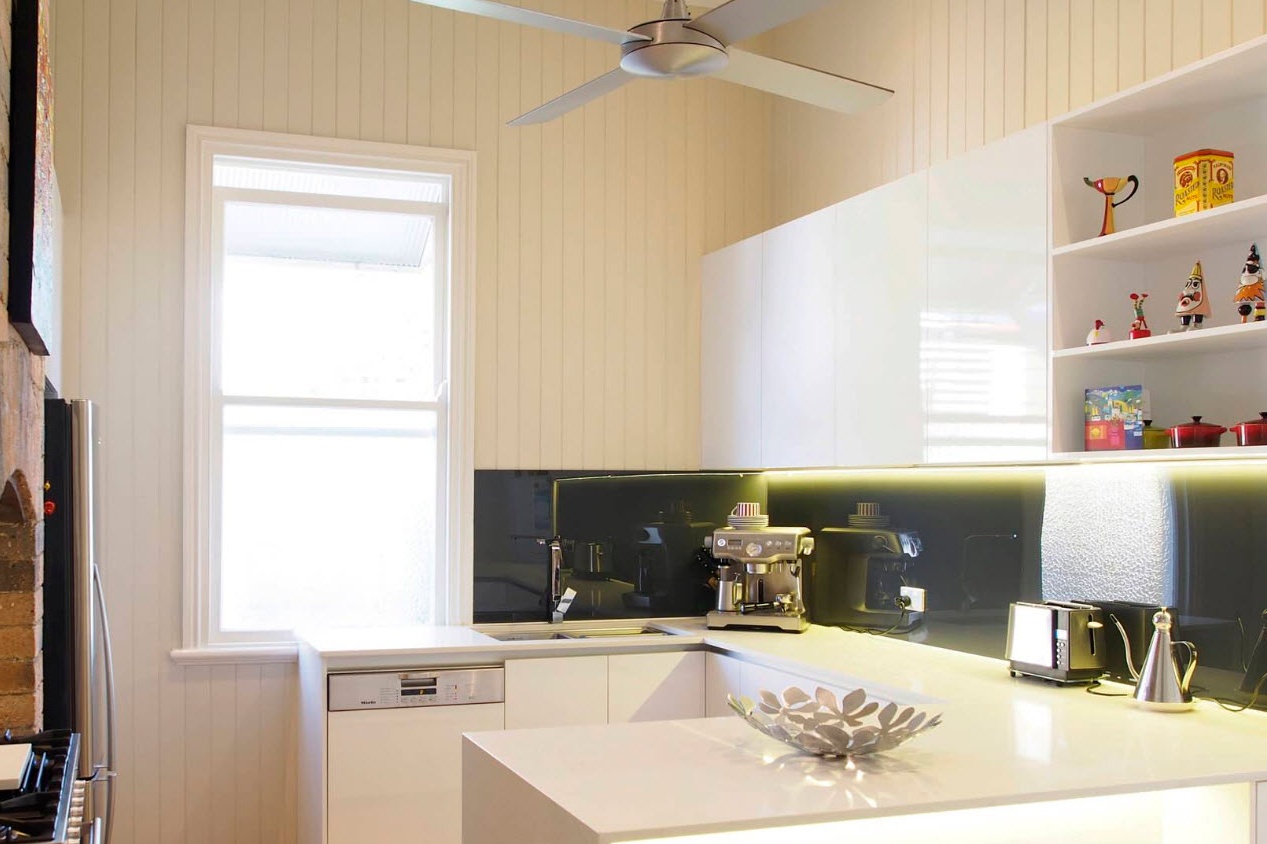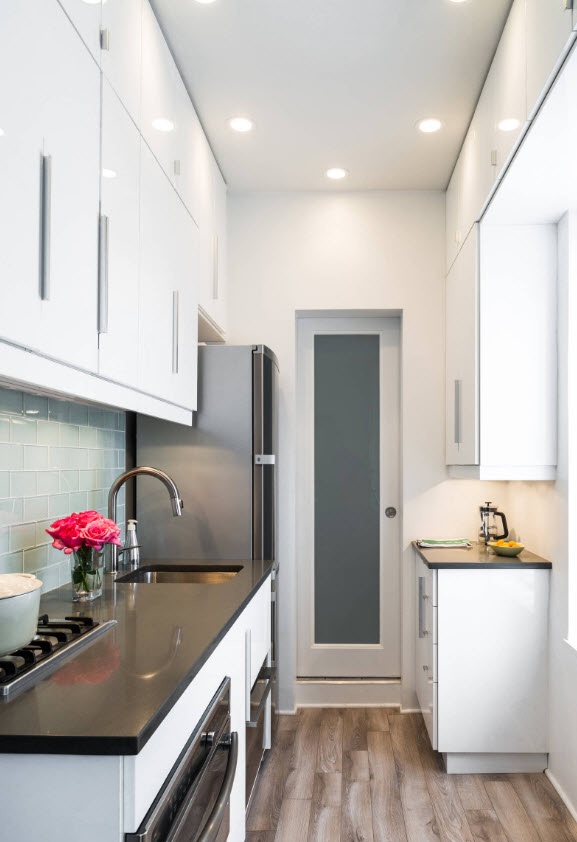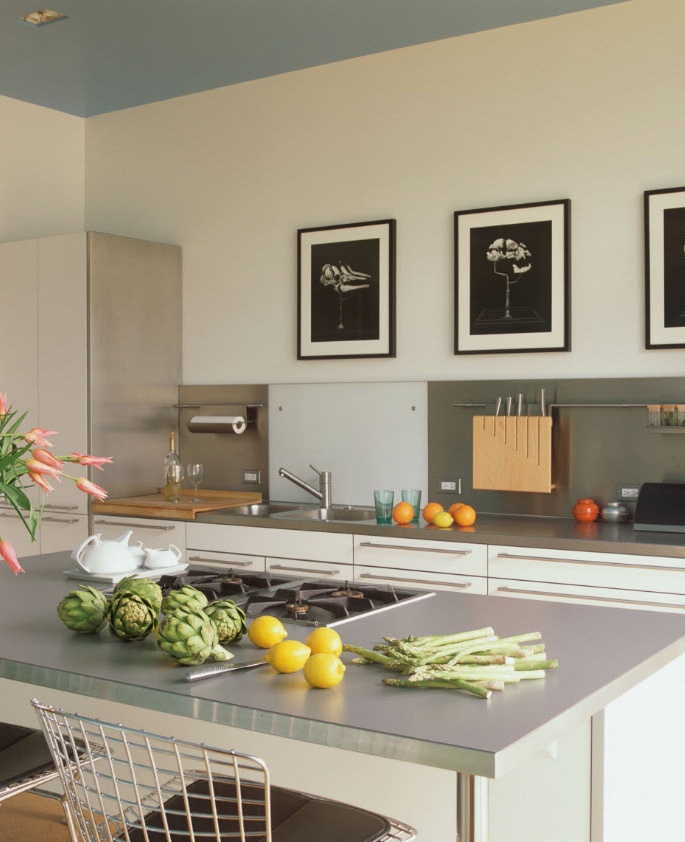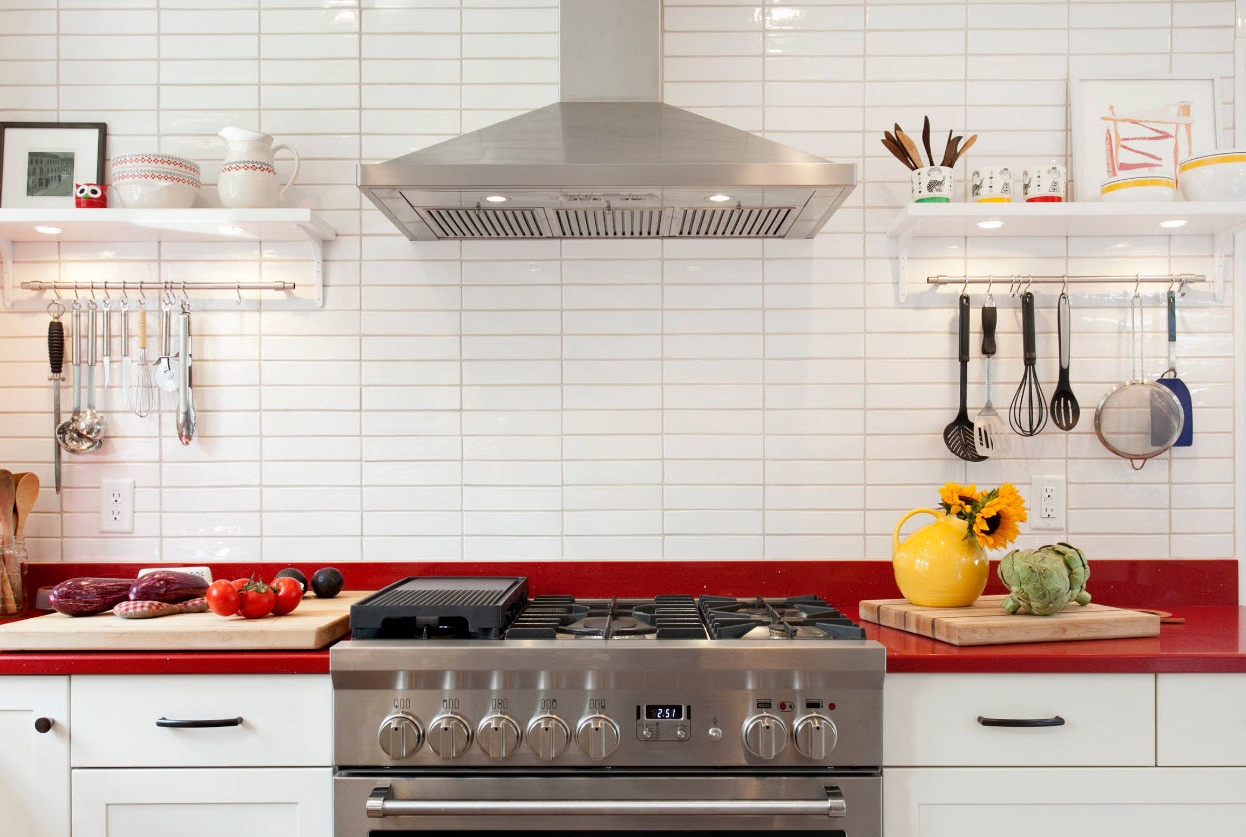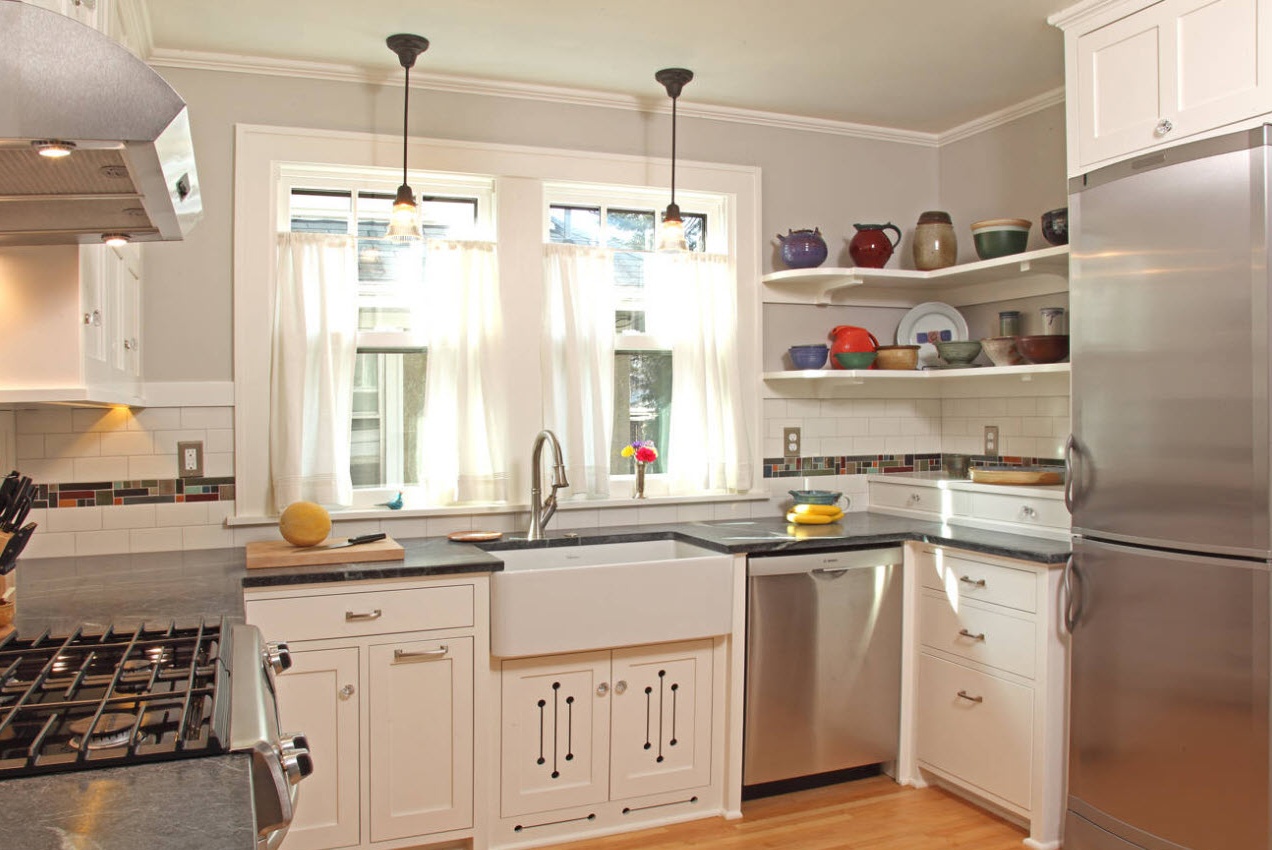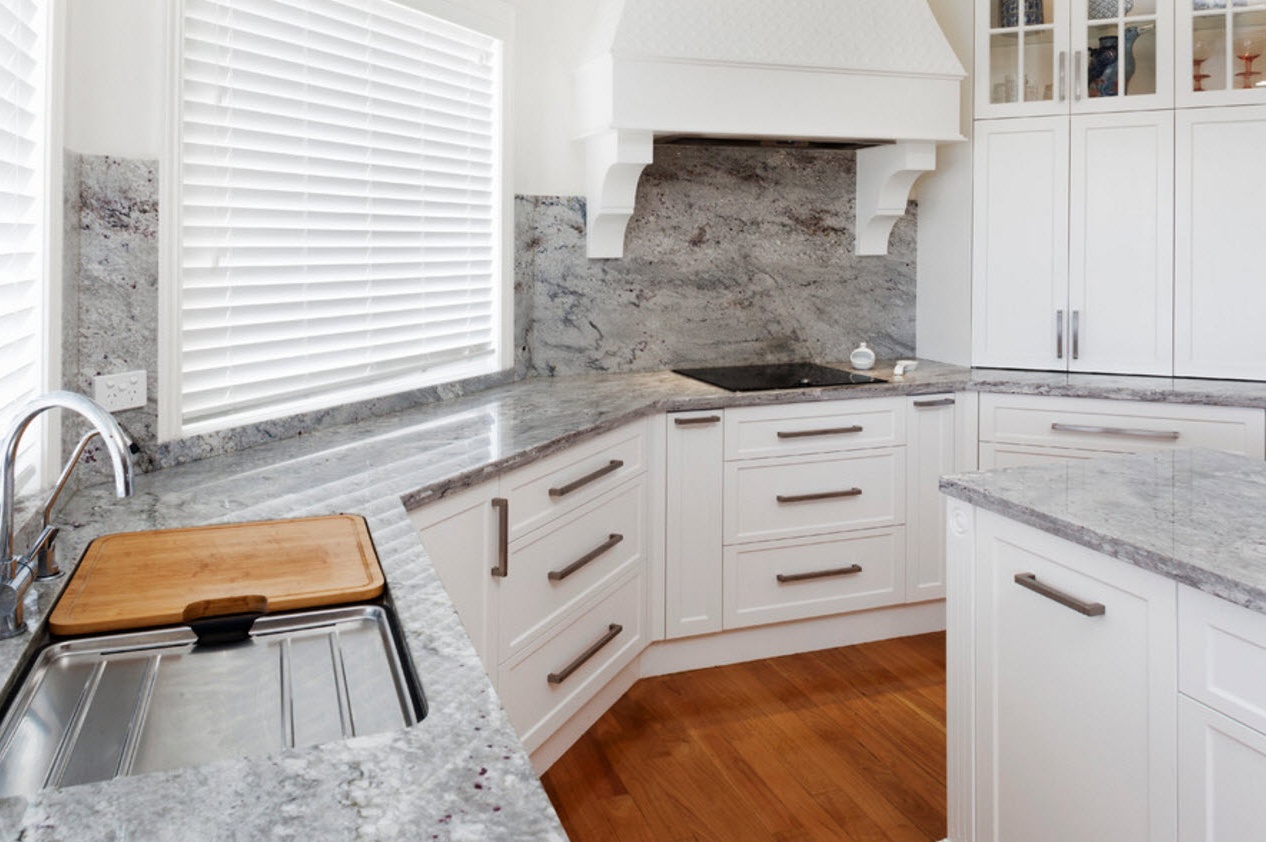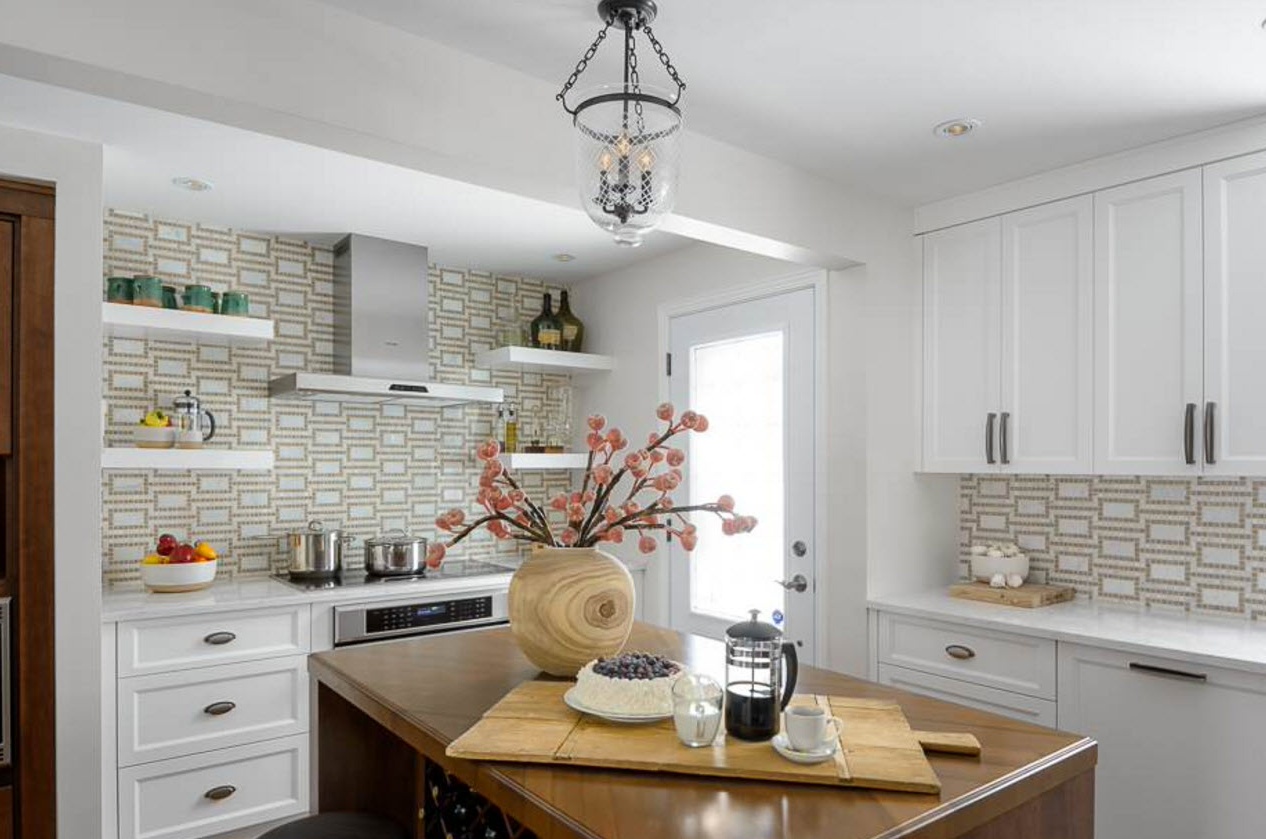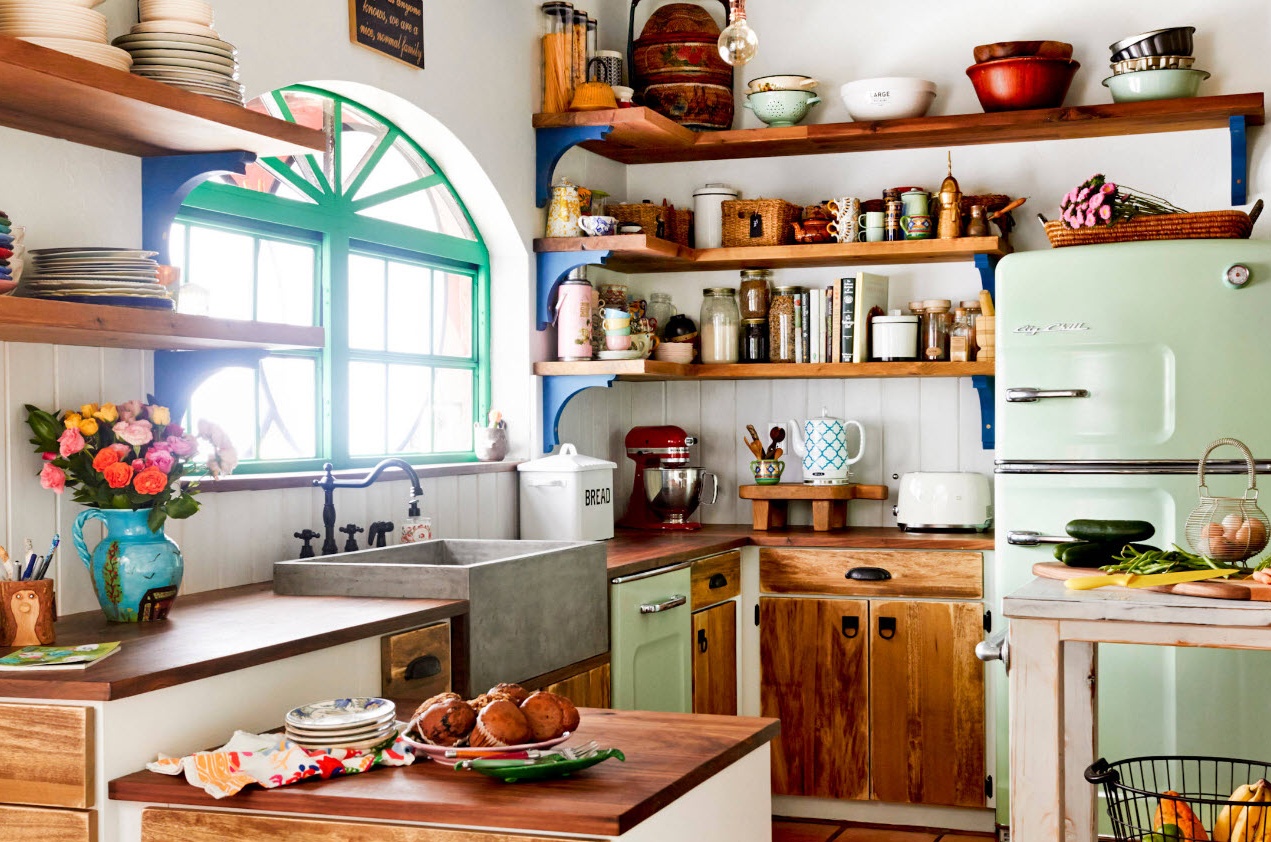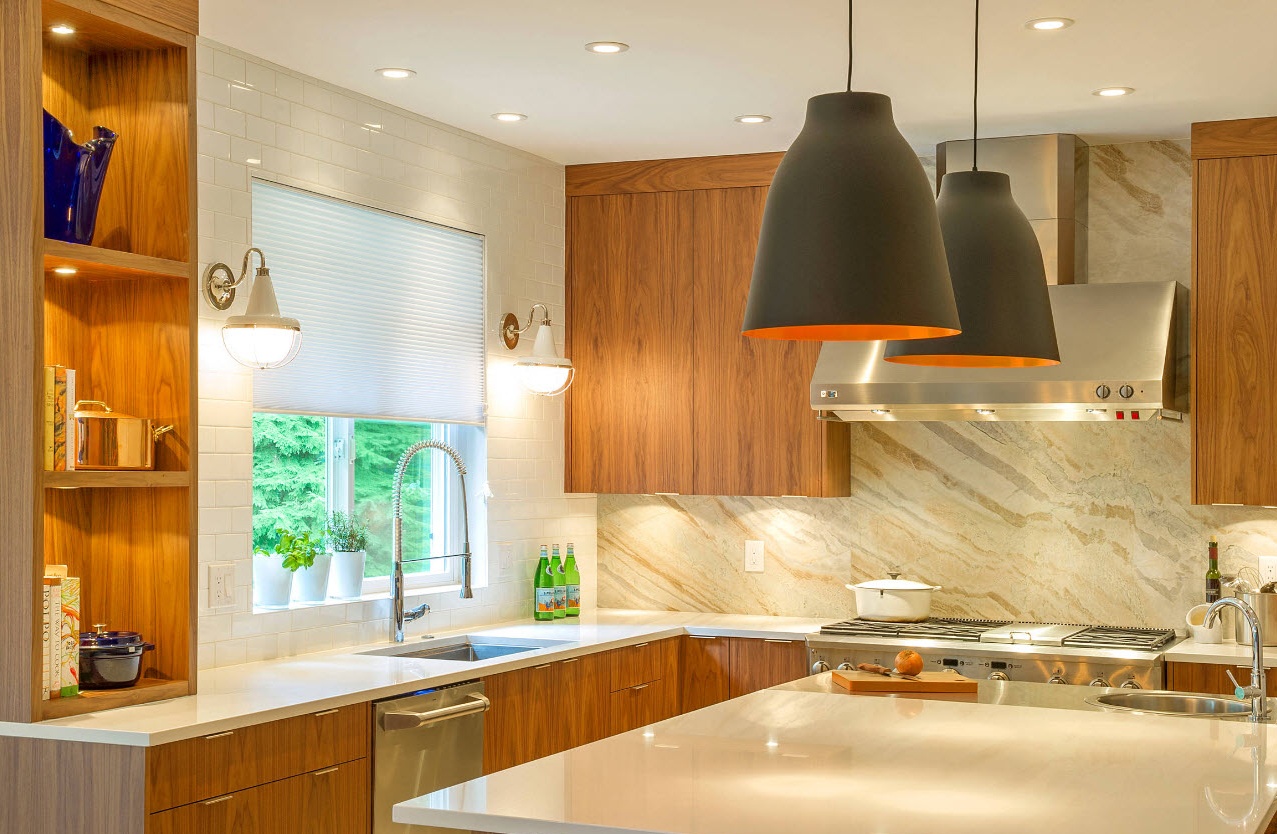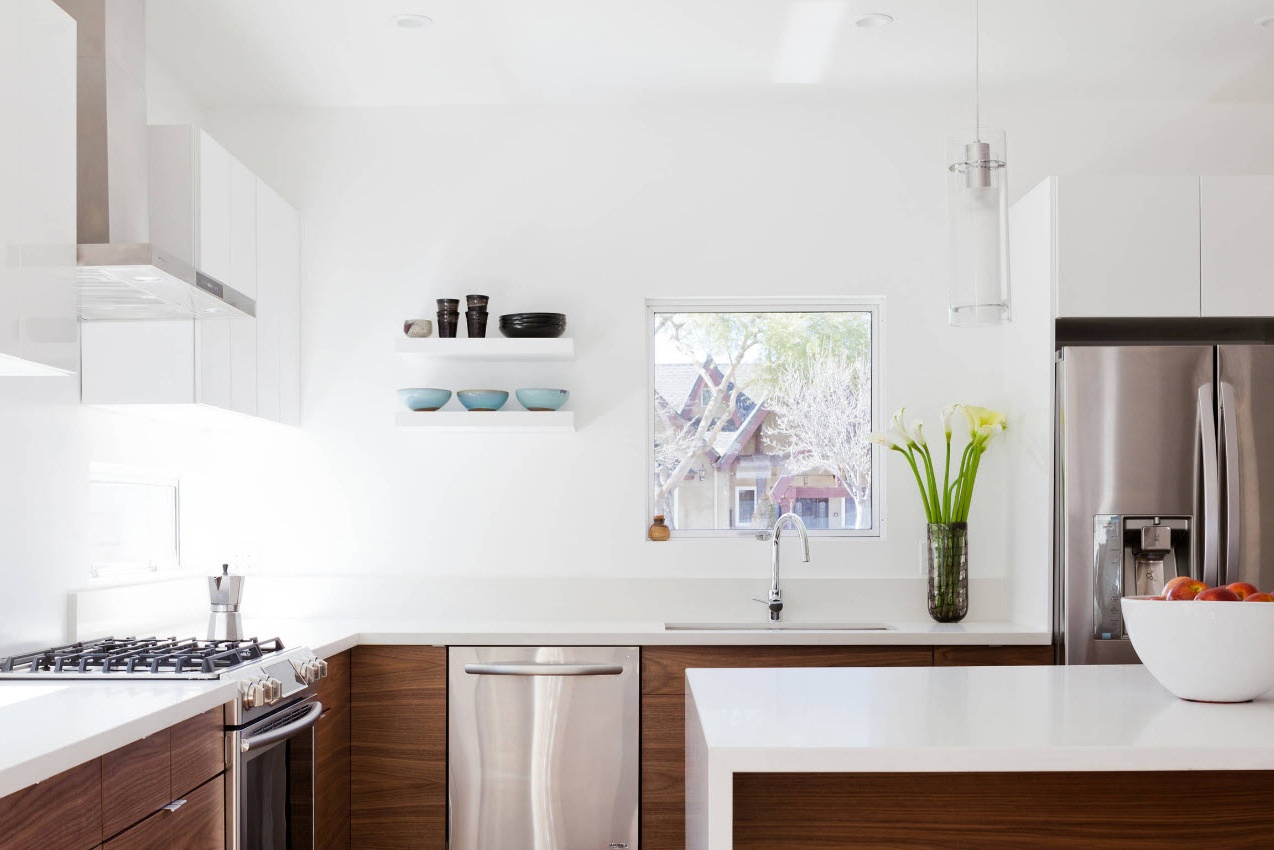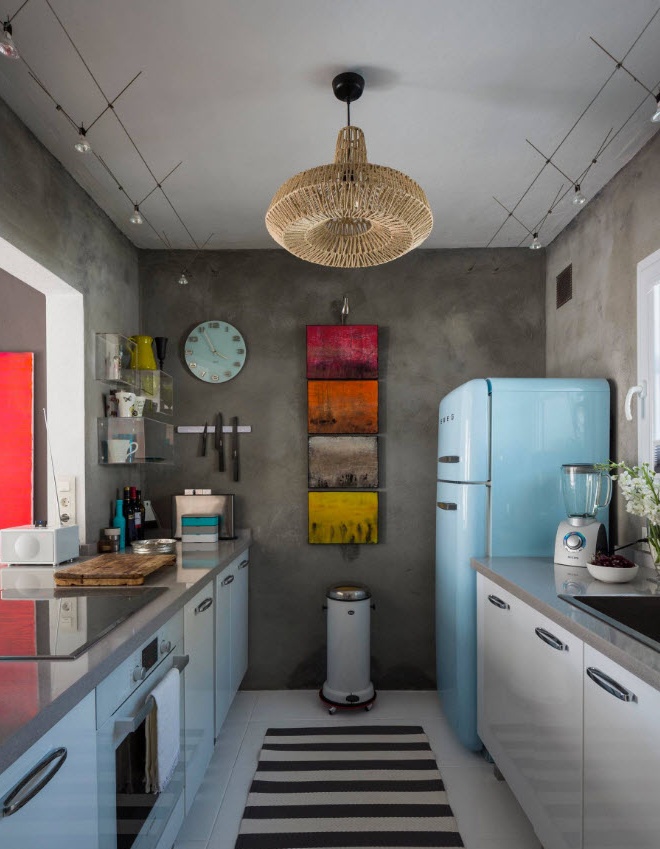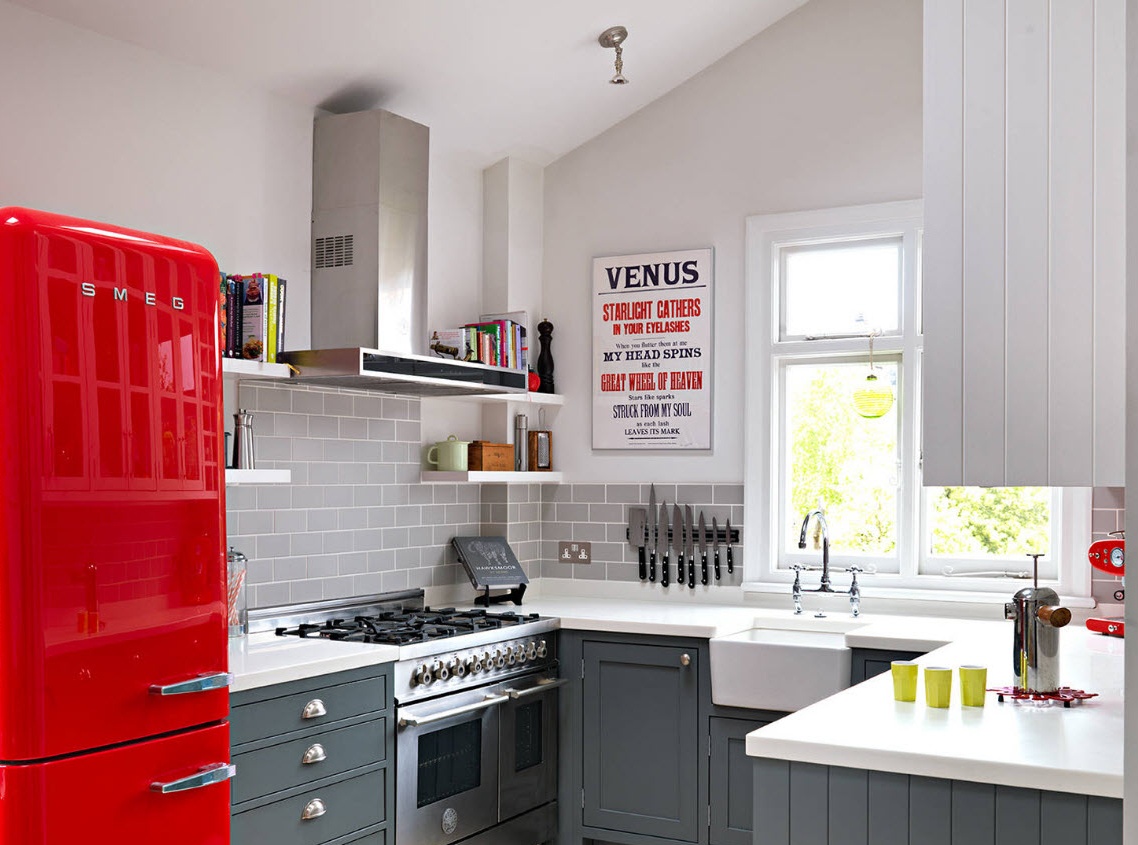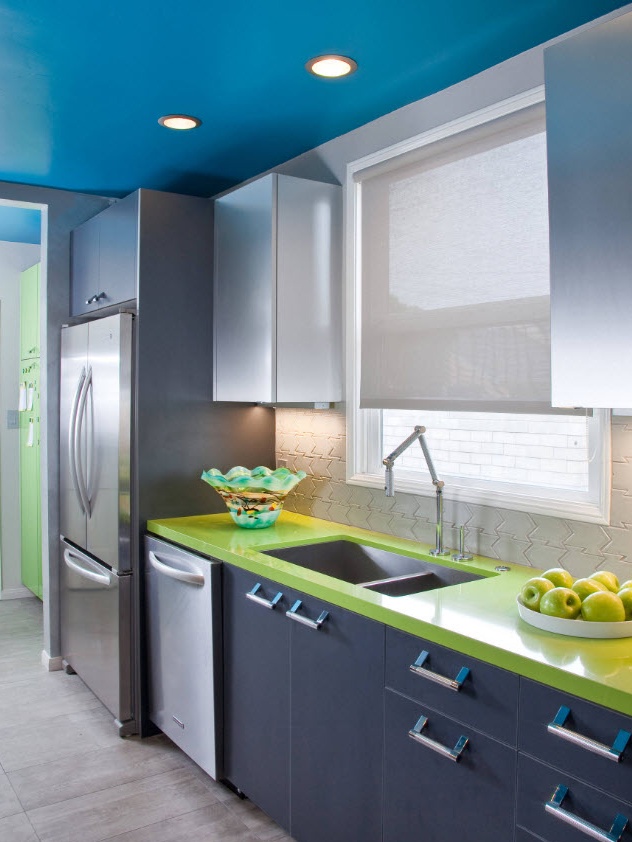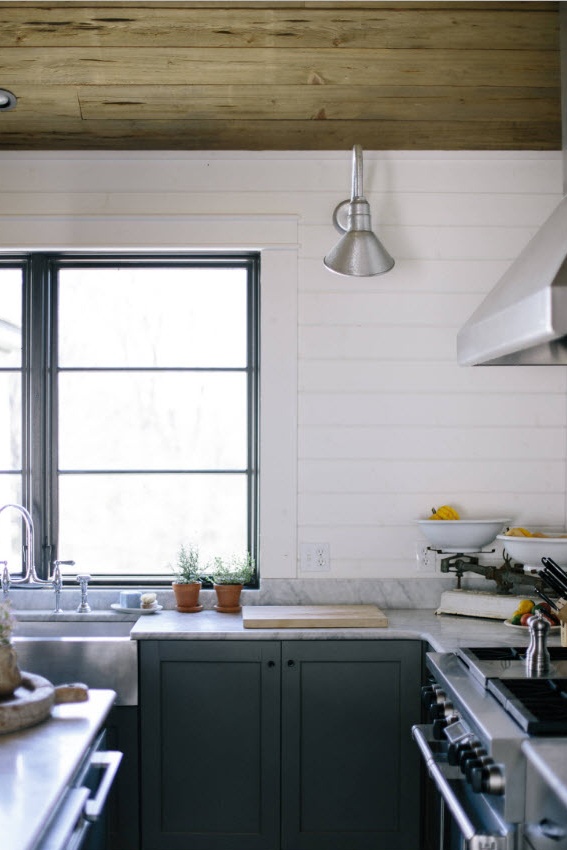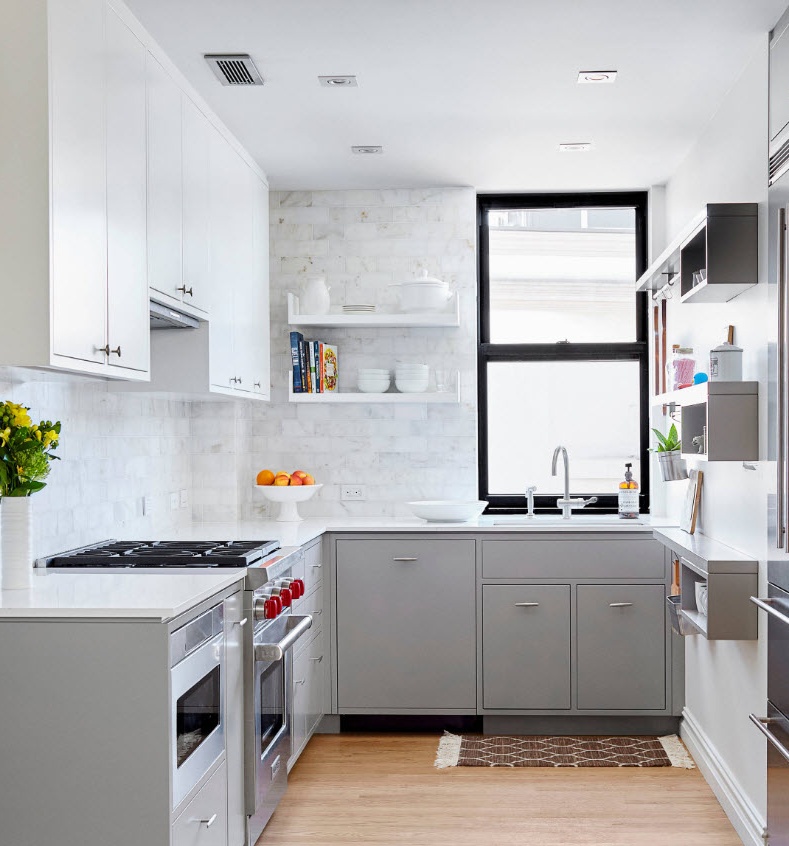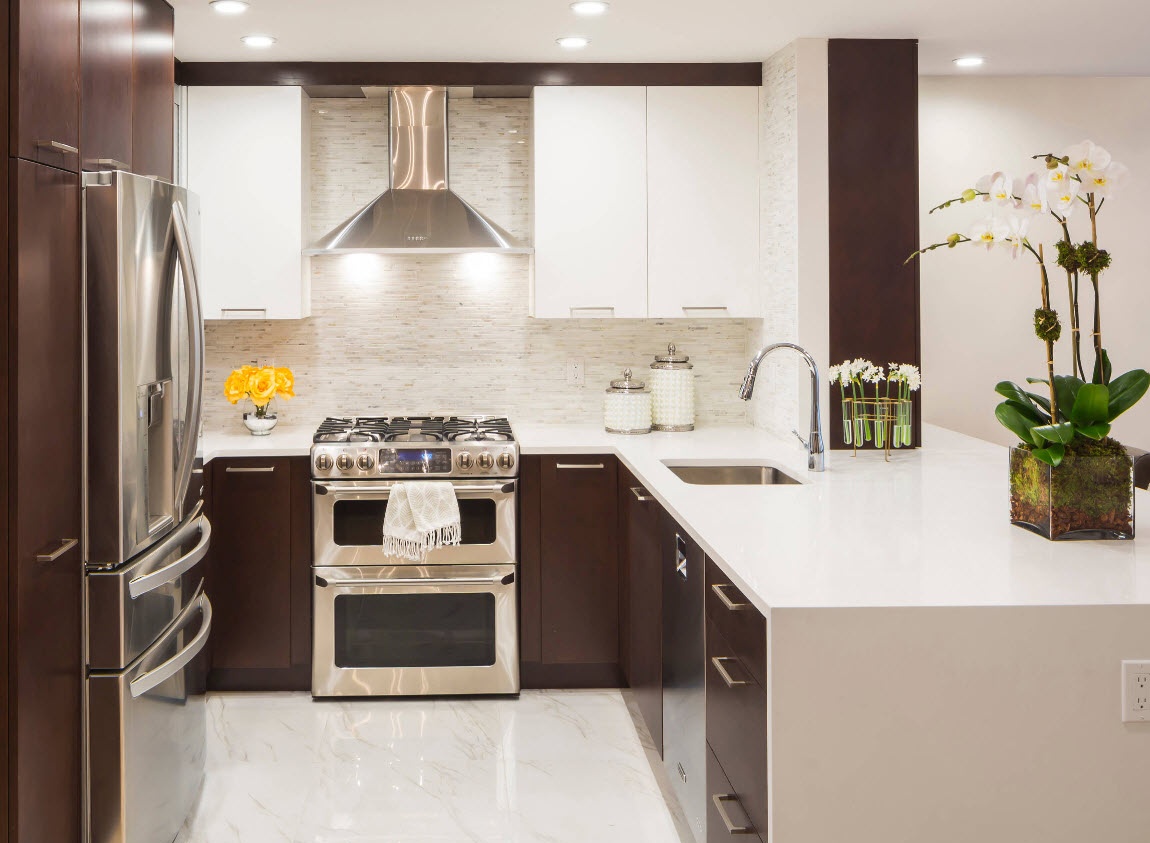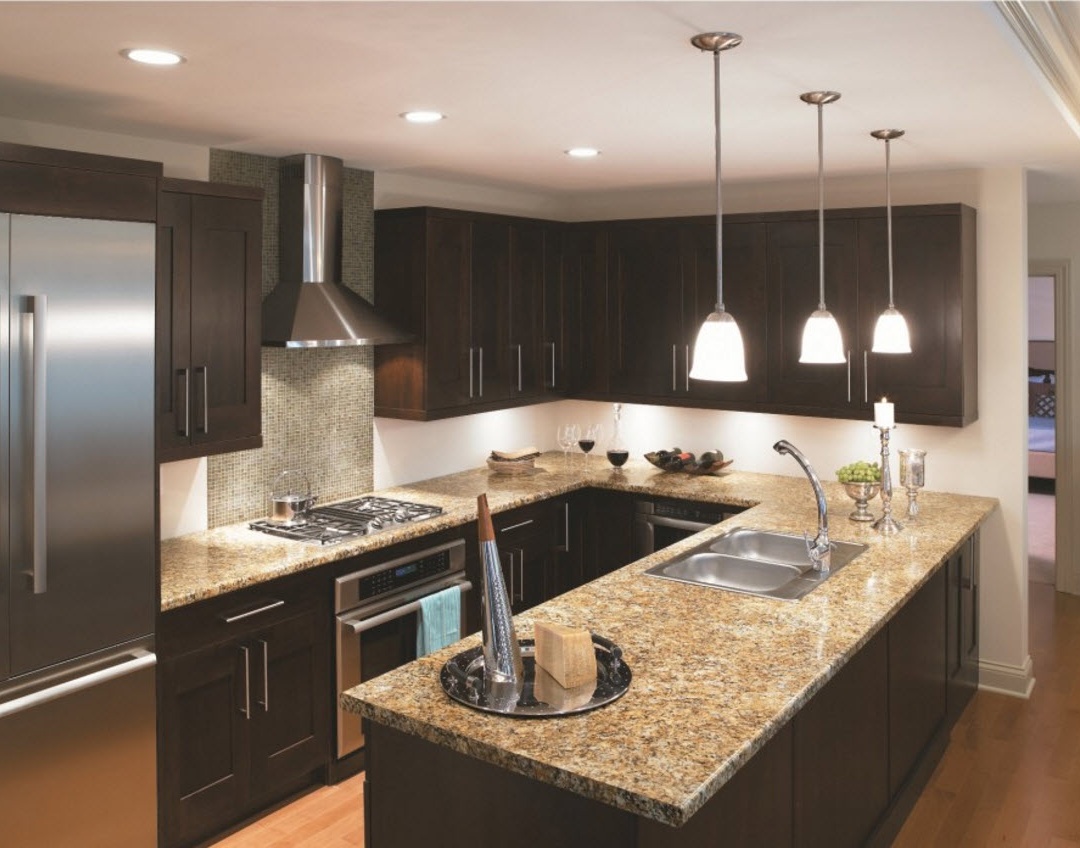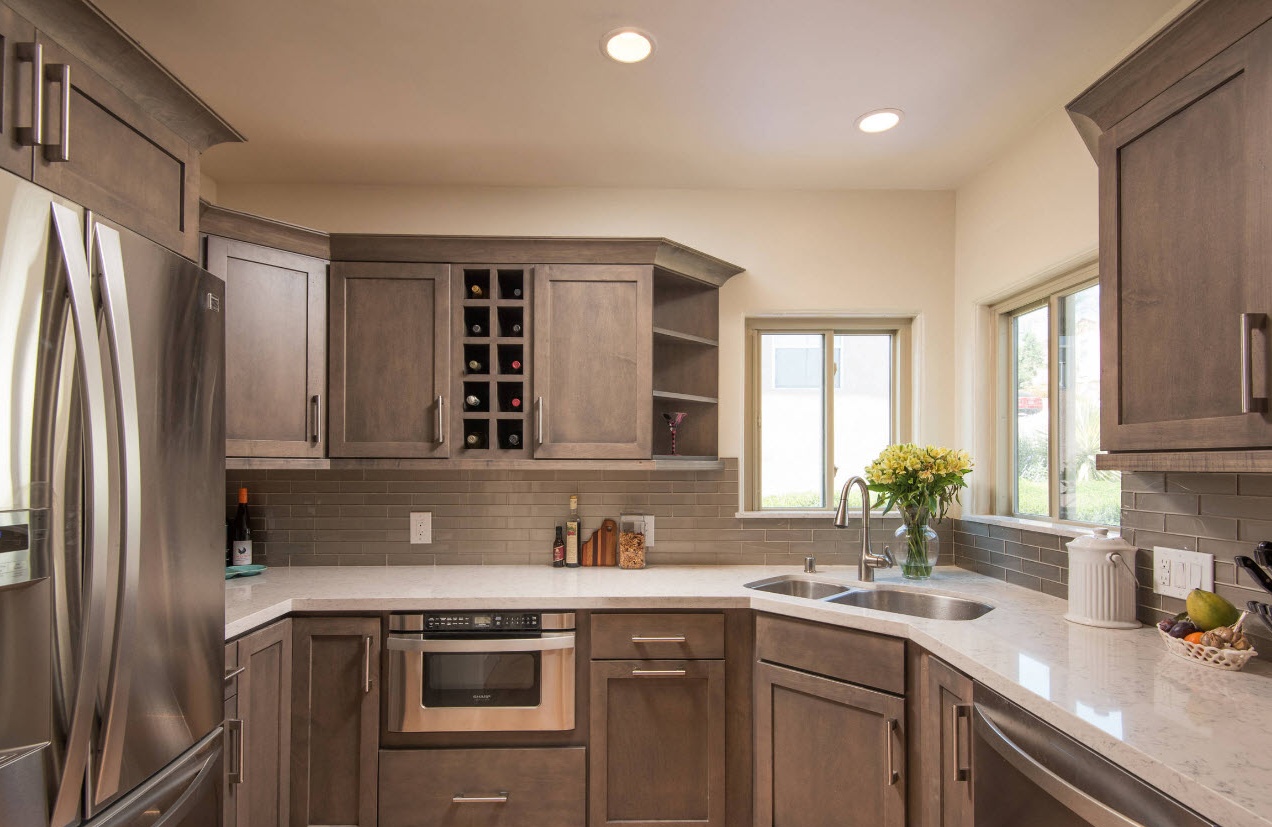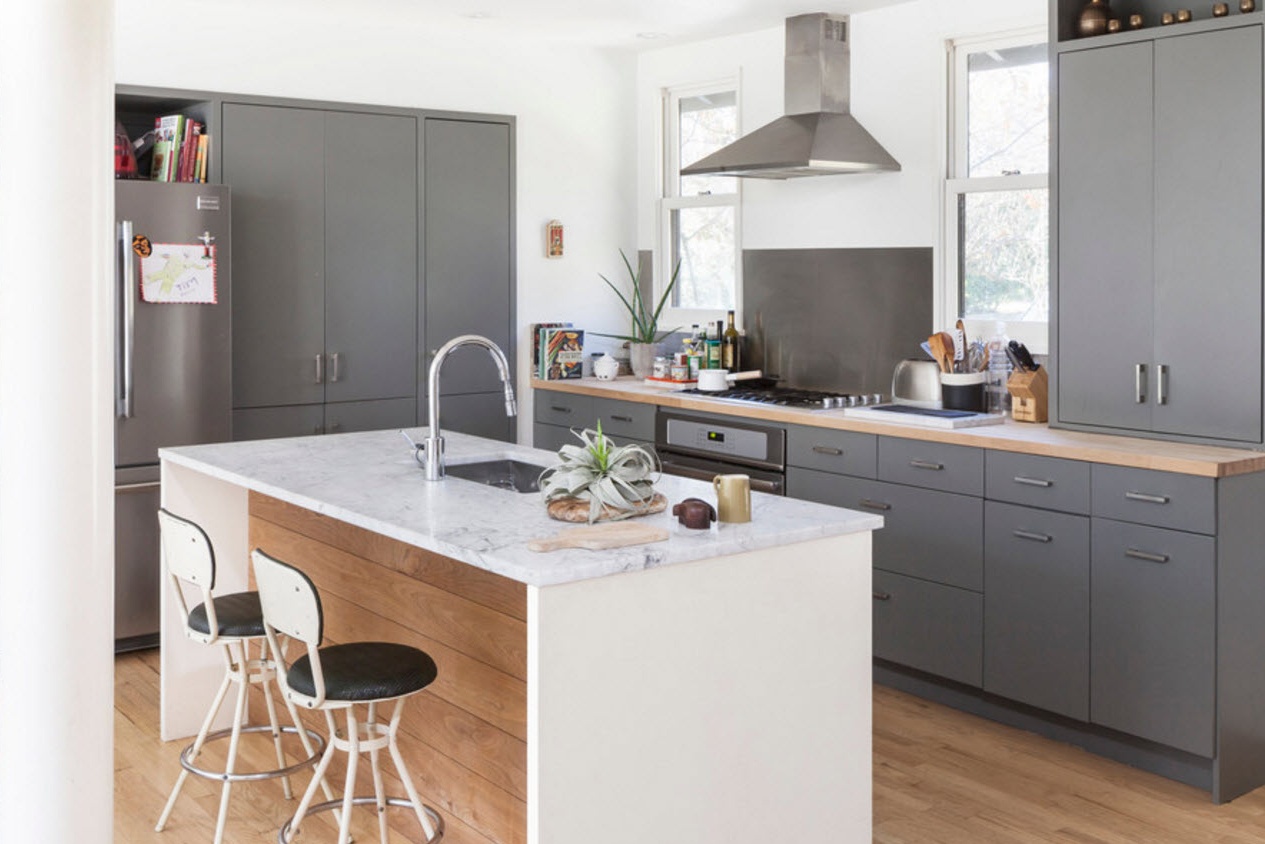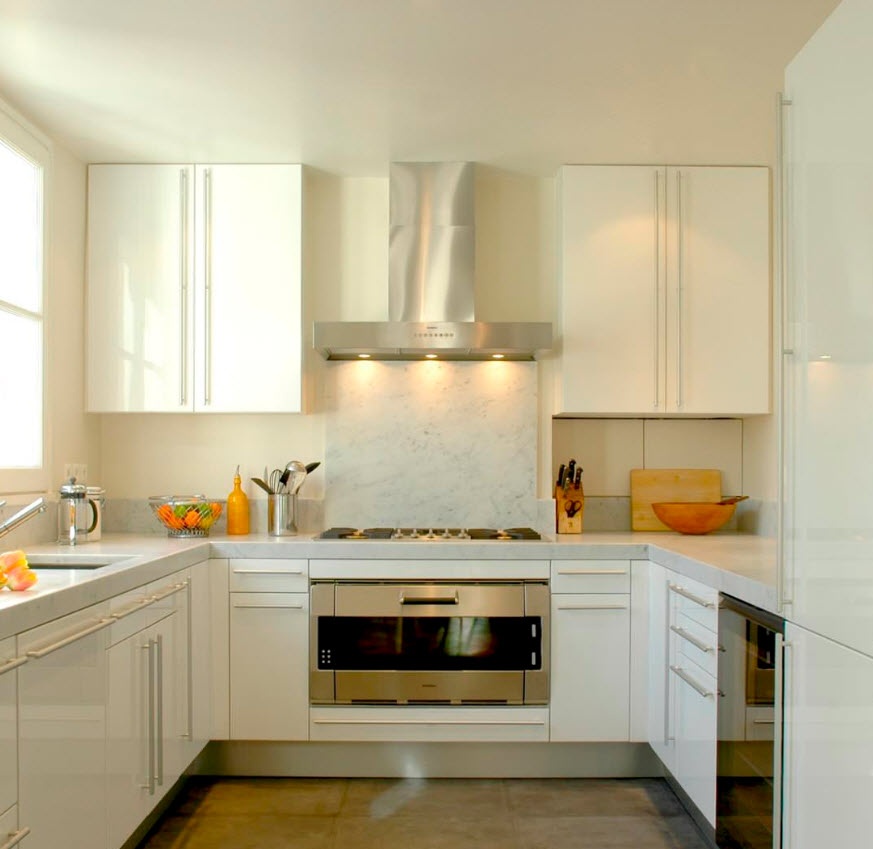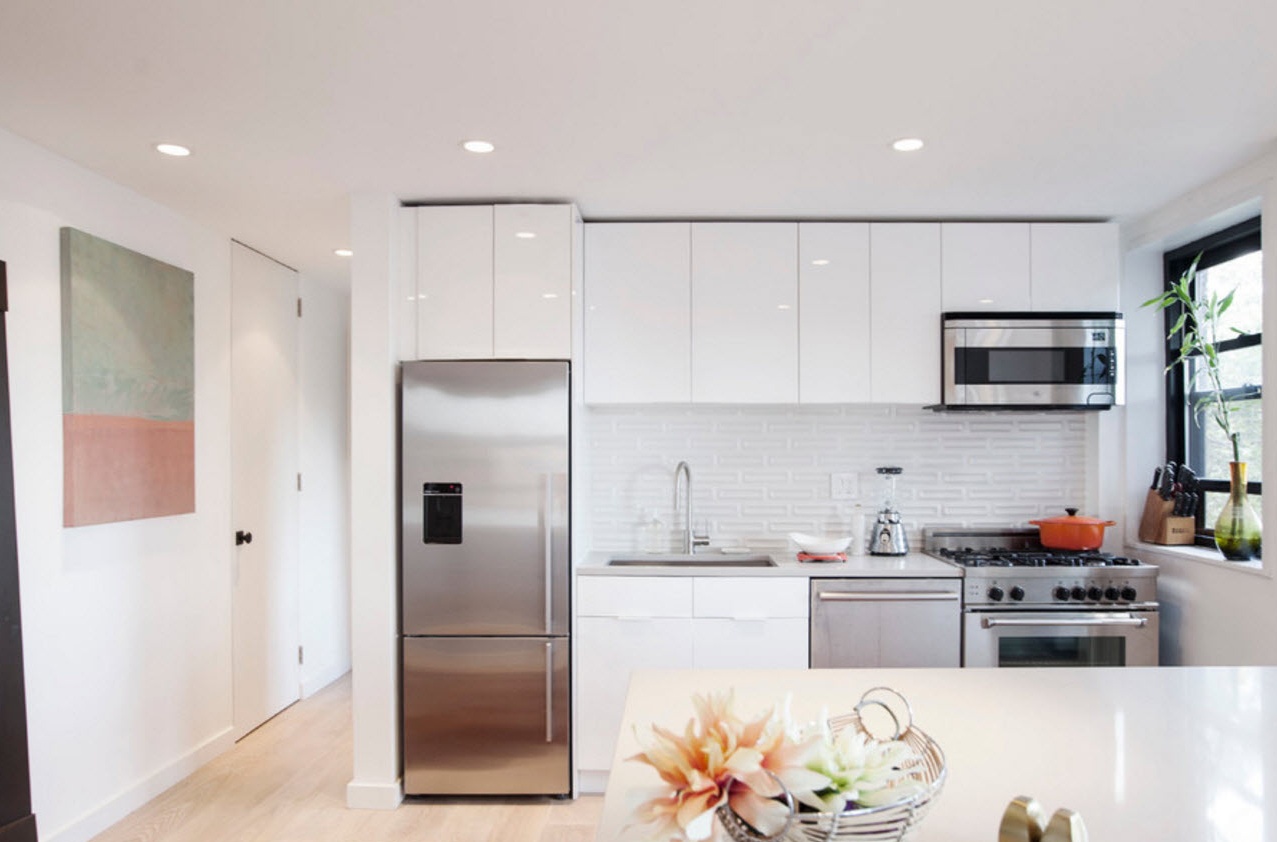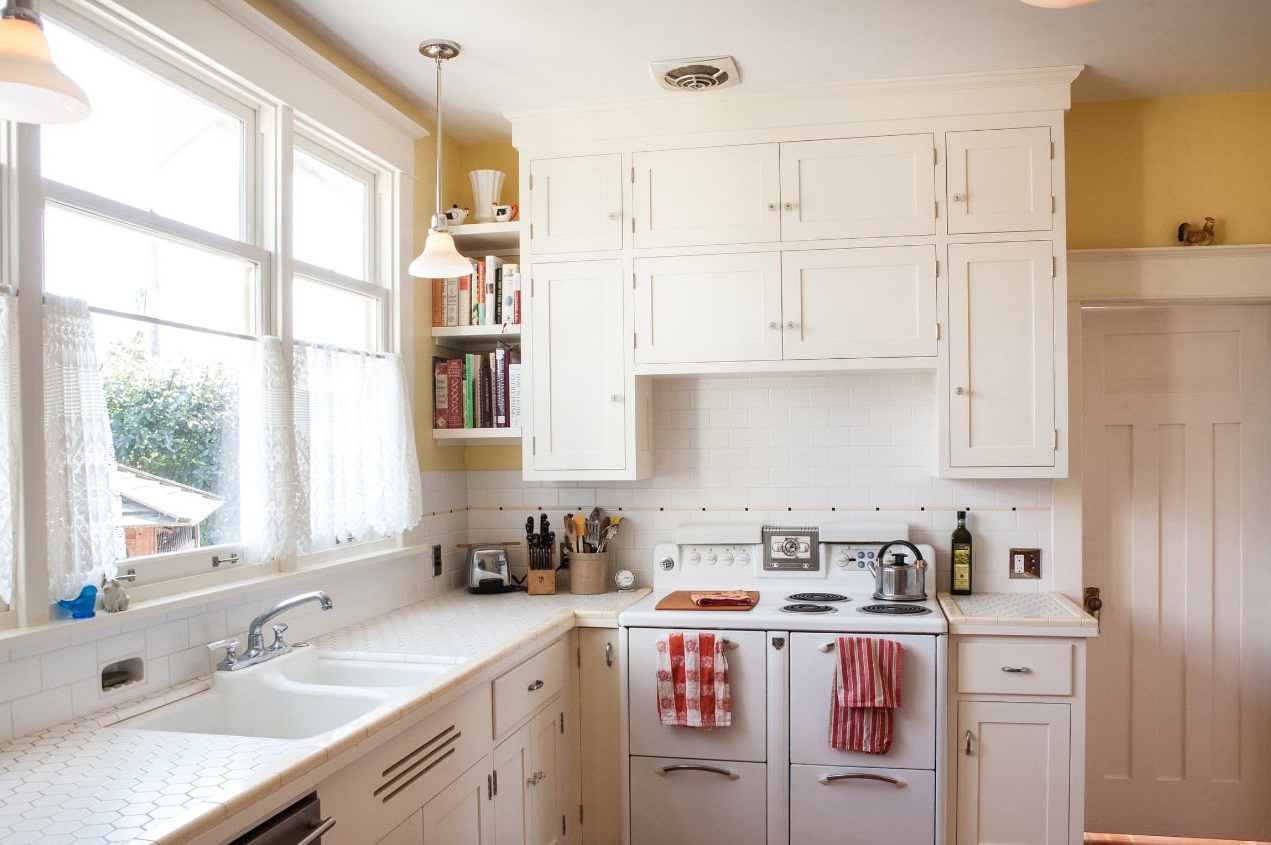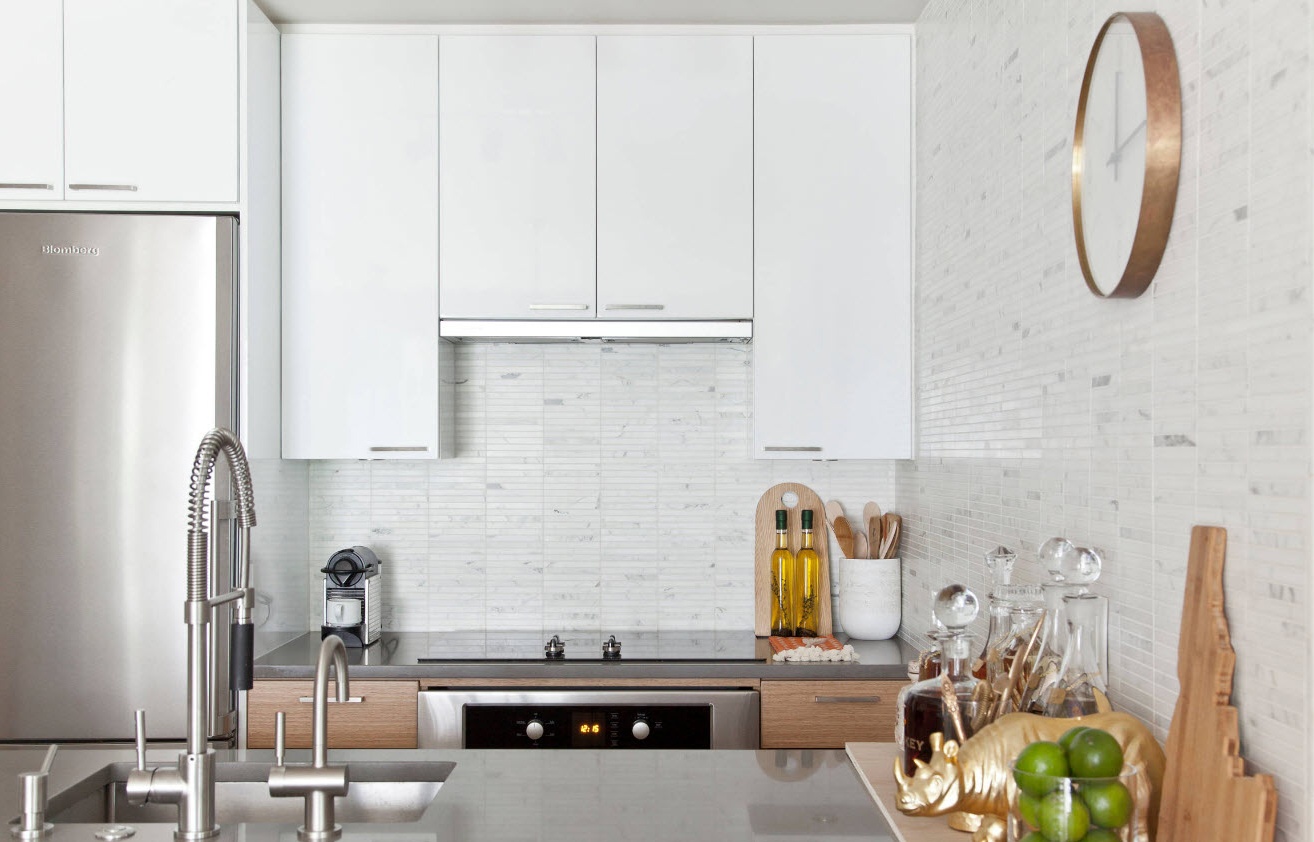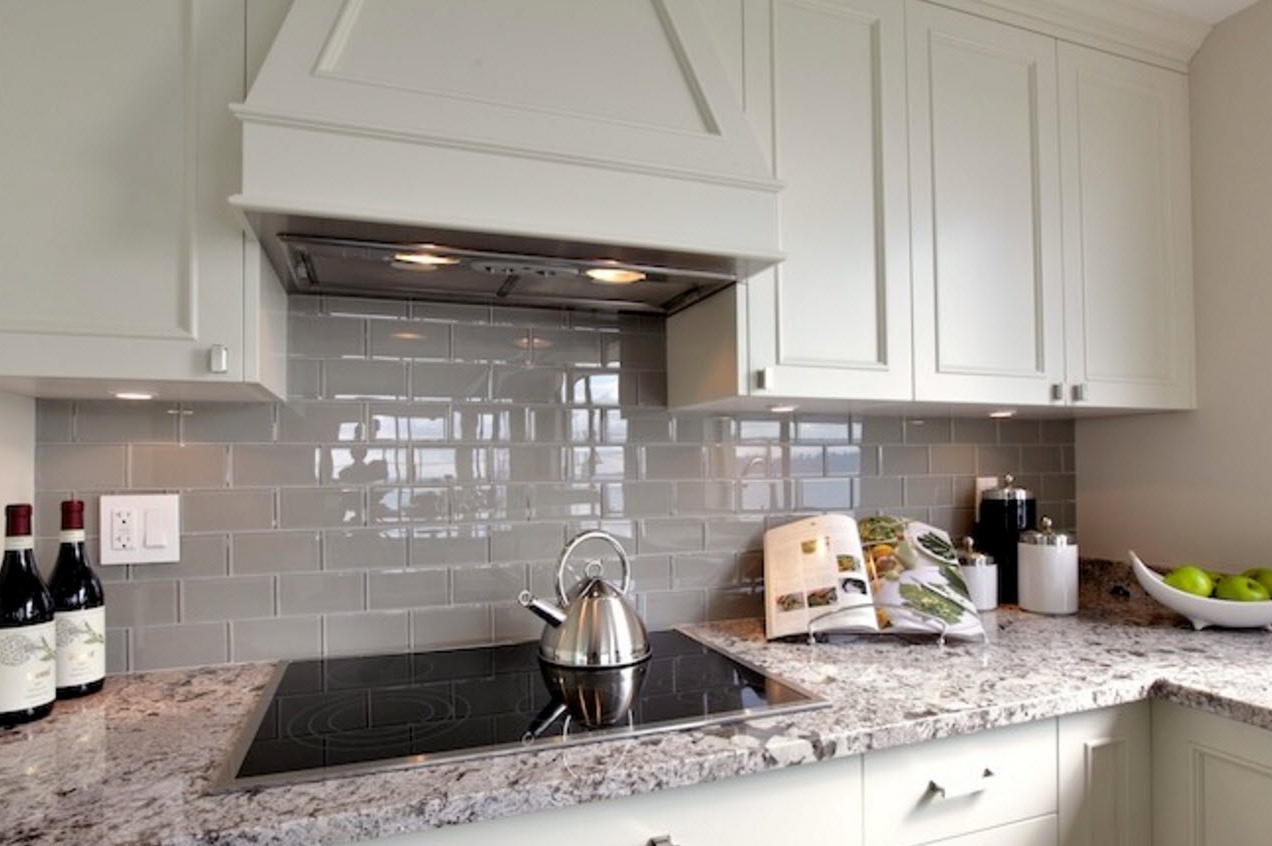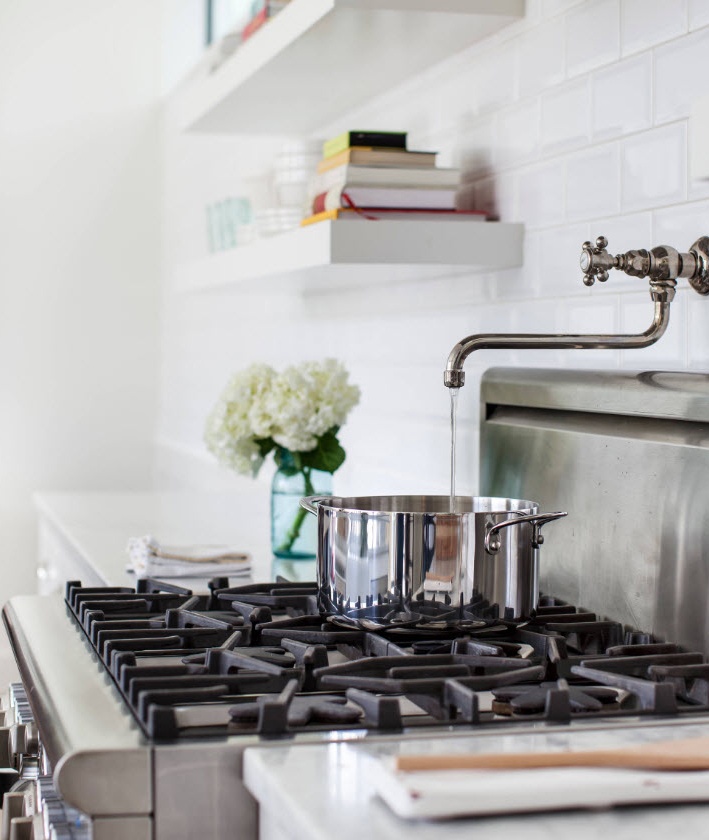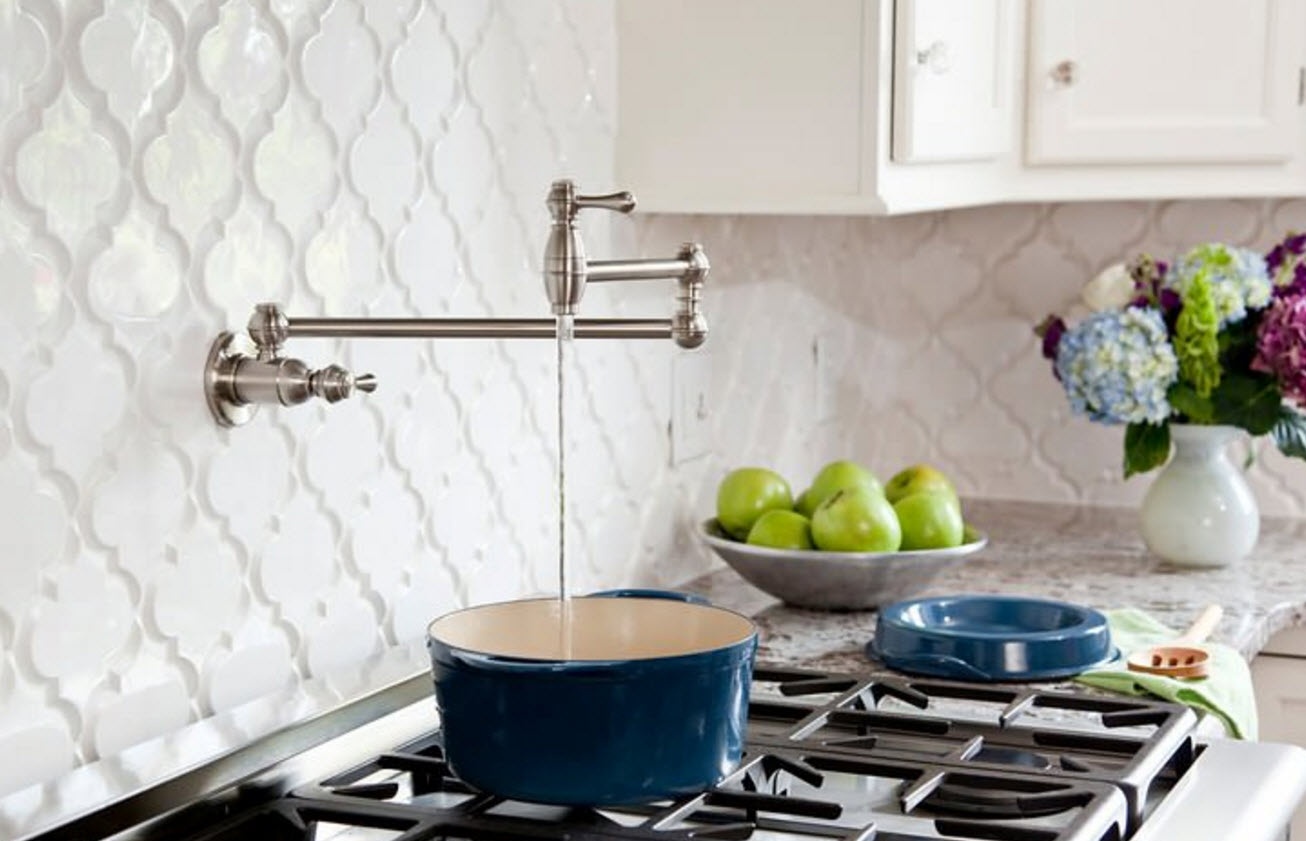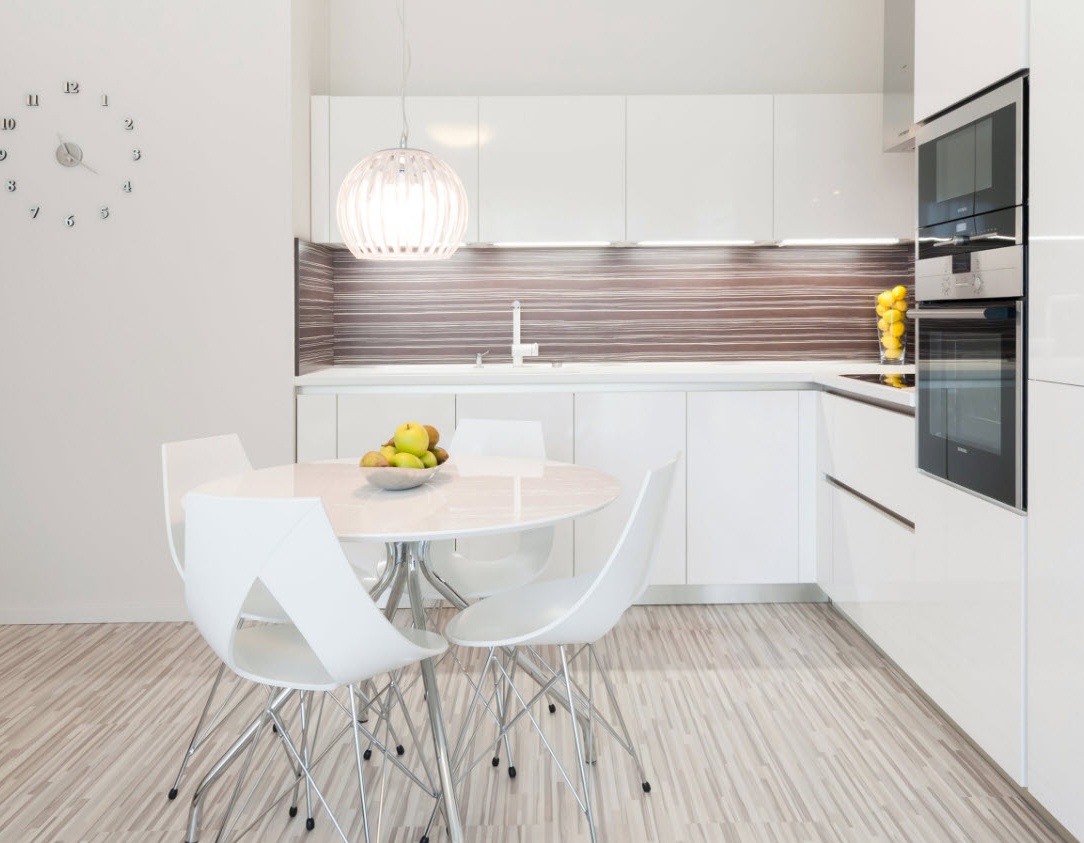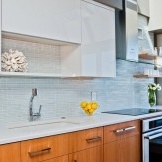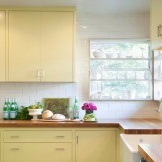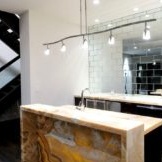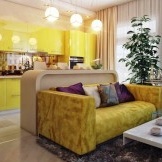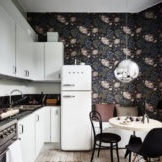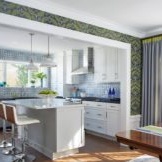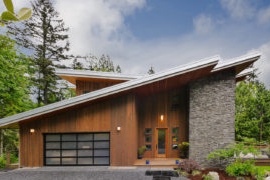Kitchen area of 9 square meters. m - 2018 design
9 sq. m area - is it a lot or a little? Most of us will think - depending on why. For a bedroom or living room - this is certainly very small. But for the kitchen - not such a bad option. After all, most of us who grew up in apartments built in the last century managed to “enjoy” small-sized kitchens with an area of 5.5 to 6.5 square meters. m. With the right choice of the layout of the kitchen ensemble, the location of household appliances, the selection of a suitable color palette and the reasonable use of decor, you can create not only a practical and functional design of the room, but also an original, attractive interior. Even at 9-10 square meters, you can create a reason for pride, a highlight of the home. We hope that 100 photo design projects of kitchen spaces with a wide variety of design options will help you realize your design dreams and create the perfect kitchen interior.
Preparatory stage
If you plan to repair the kitchen or even a small alteration, do not rush to the store for finishing materials or to display furniture. The more carefully you think over your actions, the more carefully describe your expectations, take the appropriate measurements and choose the appropriate options, which is called “still on the shore”, the less time and money you will need to spend on possible alterations and changes to the original plan. Careful planning can not be avoided, not only because 9 square meters. m can not be considered sufficient area for a comfortable location of all the necessary interior items, but also because the kitchen is an incredibly multi-functional room in which it is important to create the most comfortable, ergonomic and at the same time cozy atmosphere. It is not enough just to find a place for the location of the necessary storage systems, household appliances and work surfaces, it is important to do this in such a way that routine kitchen processes do not drive into melancholy, but give pleasure. That cooking for the whole family was a joy, not a burden.
So, in order for the created design to be convenient, practical and aesthetic for many years, you need to find out the answers to the following questions;
- how intensively the kitchen will be used - these days there are many couples who do not even have dinner in the kitchen space on weekdays, the room is used only on weekends. For others, the kitchen processes do not stop literally all day - you need to cook several meals for a large family;
- whether there is a need to arrange the dining area within a small kitchen or the dining segment can be taken out, for example, into the living room (there are small children and elderly people in the family who will not be comfortable sitting at the bar or dining console for a meal);
- Does the family need a built-in washing machine in the kitchen or can it be placed in the bathroom;
- the exact number and approximate sizes of large household appliances that will need to be integrated into the kitchen ensemble (refrigerator, stove or hob, oven, dishwasher, microwave);
- the possibility of transferring a more compact arrangement of engineering systems (water supply, gas pipeline, sewage system, exhaust hood, electrical wiring);
- the location of the room relative to other rooms of the dwelling (the kitchen can be a walk-through space or be part of a combined studio);
- number, location and scale of window and door openings;
- the location of the room relative to the cardinal points (will affect the choice of color palette and emphasis).
The choice of layout of the kitchen ensemble
The location of storage systems, built-in household appliances and work surfaces largely determines the environment of the kitchen space. The level of usability of the room, its ergonomics and functionality will depend on how efficiently the layout of the furniture set is chosen. Unfortunately, the ideal arrangement of the kitchen ensemble does not exist, because the kitchens even with the same area can differ greatly from each other - in shape, arrangement of window and doorways, placement of the room relative to other rooms of the dwelling.
So, the following factors will influence the choice of layout of a furniture ensemble:
- room shape;
- the location, number and size of door and window openings;
- location of communication systems;
- the need to install a dining group;
- the number of household appliances and their sizes;
- Also, the layout of the kitchen in relation to other rooms will affect the choice of layout - whether it is part of the living room, a separate room with a separate entrance or walk-through space.
Corner layout
L-shaped layout is one of the most versatile options for arranging a furniture set and built-in household appliances. In standard apartments, the kitchen most often represents a room in shape, close to the square. It is very convenient to place the kitchen ensemble along the wall with communications and a short wall perpendicular to it with a doorway (usually opposite the window). With this layout, it is possible to place the largest number of storage systems, leaving free space for the installation of a small full-fledged table, island or peninsula.
Kitchen Island is a free-standing furniture module, which is an effective mix of storage systems, work surfaces, a place for the integration of household appliances or sinks, as well as the creation of a dining area. The island becomes an excellent complement to the angular layout - in total they represent the most efficient use of the available square meters of area to create a practical, functional, ergonomic and aesthetic kitchen ensemble.
Complementing the corner layout with a kitchen peninsula allows you to create not only a practical and ergonomic environment, increase the number of storage systems, but also create a place for meals. Unlike the kitchen island, the peninsula is not a separate module and one of the sides is attached to a wall or furniture ensemble, which means that it requires less usable space. In the bowels of the peninsula, you can place storage systems or integrate a household appliance (for example, an oven).
U-shaped layout
This layout is an arrangement of a kitchen set along three walls in the shape of the letter "P". This arrangement will be optimal for a large family that needs many storage systems to maintain order in the kitchen. But with this arrangement of furniture, in the kitchen with an area of 9 square meters. m most likely there will be no options for installing a dining table (unless it is very narrow, provided that the kitchen is square-shaped).
In the U-shaped layout, it is easy to enter “working triangle” ergonomically - a refrigerator, a stove (hob) and a sink. Having the conditional vertices of the triangle on opposite sides, you can not only simplify your work (moving between strategic objects will be minimal, because the area of the kitchen is small), but also observe safety measures.
The peculiarity of the U-shaped layout is that most of the room is filled with storage systems and household appliances integrated into the furniture ensemble. To make the image of the kitchen space easier, you can use open shelves in the upper tier of storage systems. A slightly smaller effect can be achieved when using cabinets with glass inserts in the doors.
Parallel arrangement of furniture
The arrangement of the kitchen in two rows, opposite each other - the best option for very elongated and walk-through rooms, for rooms with a panoramic window or balcony unit, a door leading to the back patio. Most often, with such a layout, it is not possible to arrange the dining area in a room with a small area of 8-10 sq.m. But the location of the peaks of the "working triangle" is not difficult.
Single-row (linear) way of arranging furniture
The linear layout is mainly used in kitchen spaces of a small area in which it is not possible to arrange the set L-shaped or there is a need to install a large dining table. In a single-row layout of a furniture ensemble, it is most difficult to place a “working triangle” according to ergonomic rules. The solution may be the removal of one of the components (stove, hob or sink) for integration into the kitchen island.
The linear layout most often appears in an alliance with a dining group - a table and chairs. But in modern design projects, you can find many examples of the effective use of a kitchen island or peninsula to increase the number of storage systems and create a place for meals.
The color palette of finishes and kitchen facades
Kitchen space of 9-10 square meters. m can not be called spacious. Experts recommend using a light palette for interior decoration to visually increase the space and create an easy, fresh image of the room. Abroad, design projects of light kitchen interiors (all shades of white and pastel colors) have long been considered the most popular. Among our compatriots, light facades are gaining popularity. Many homeowners have already managed to appreciate the advantage of using a light headset - not only a visual increase in the room, but also ease of care (fingerprints, dried up drops of water are more clearly visible on dark surfaces of cabinets).
But using white color for the decoration of the kitchen, and for the execution of the facades of the furniture set, we risk getting a design that is steadily associated with a sterile operating room. To dilute snow-white surfaces, a color accent is needed - a bright, dark or mottled spot that attracts attention. The easiest way is to create an accent surface in the area of the kitchen apron - ceramic tiles, mosaics, glass, plastic or any other colorful material will look spectacularly surrounded by a light background.
Highlighting countertops in a contrasting tone, against the background of light kitchen facades and similar finishes, allows not only to highlight the geometry of the room and furniture ensemble, but also to create a much-needed accent.
Another effective way to dilute a light palette in a small room is the integration of wooden surfaces (or their high-quality imitation). The natural pattern of wood always raises the degree of color temperature of the room, making the atmosphere more comfortable, cozy, homely. The alternation of white and wood shades helps not only balance the color balance, but also create a modern, relevant design of the kitchen.
The latest trend in the choice of color solutions for the kitchen room has been the use of household appliances in bright or unusual colors. Most often, such devices are made in retro style, but at the same time they have all the modern functions. A bright technique becomes an accent if you use it in a light interior or design with neutral color schemes.
In order to visually increase the height of the kitchen room, it is enough to use a light tone of the execution of the upper tier of cabinets and a dark shade for storage systems of the lower level. In this case, it is not necessary to use radically contrasting solutions - to use white and black, enough pastel tones in the upper part and dark gray, dark brown or dark blue in the lower tier of kitchen cabinets.
2017 trends for small kitchens
In kitchens with a small area, it is important not easy to create a visual expansion of the space, but also to effectively use every square centimeter. Kitchen furniture manufacturers are helping the modern homeowner, offering turnkey solutions with rational models of corner storage systems that help create the maximum possible amount of free space for placing kitchen utensils at the lowest cost of useful kitchen space. Compact models of household appliances, combining the necessary list of functions, at the least cost of space for integration, create a functional kitchen space, ready to perform any work processes.
The location of the upper tier of the kitchen unit from the ceiling itself allows not only to use the kitchen space as efficiently as possible, but also visually increase the height of the room. The average growth of Russians most often does not allow you to comfortably use the upper shelves of storage systems, but in hard-to-reach places you can store utensils that you have to use infrequently.
A water tap above a stove or hob is not only a fashionable kitchen accessory, but also an incredibly practical way to save time and effort. You can draw water into a pot that is already on the stove.

